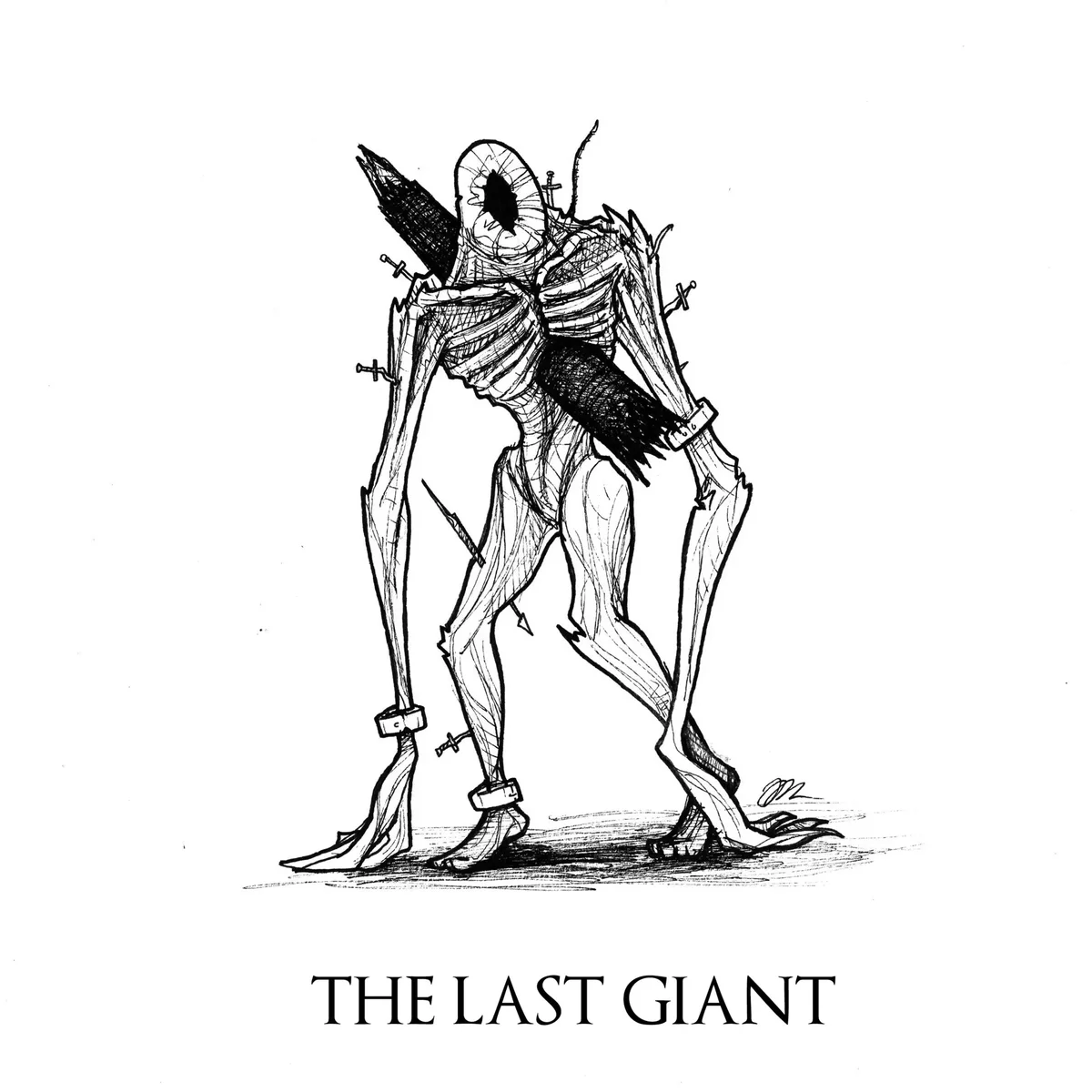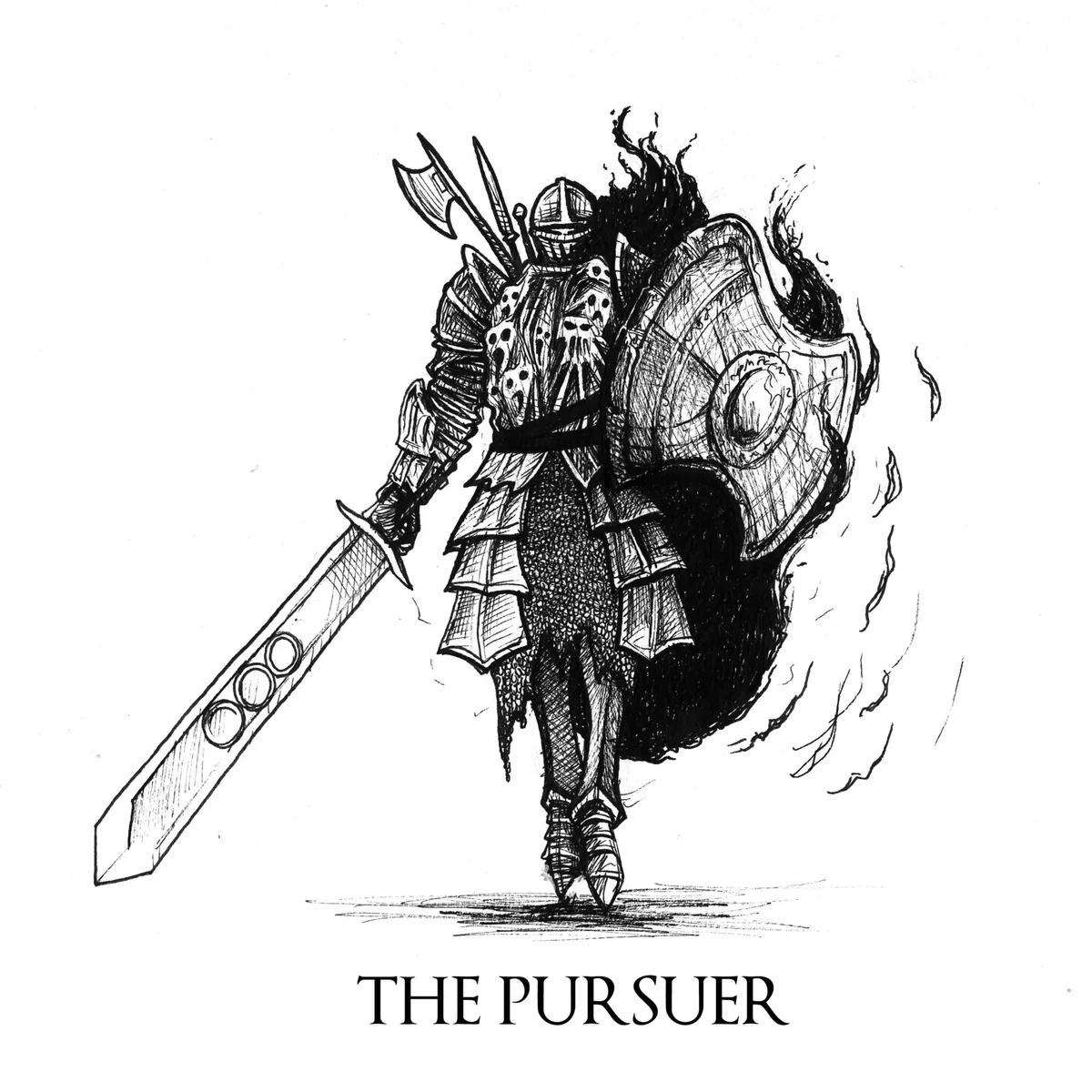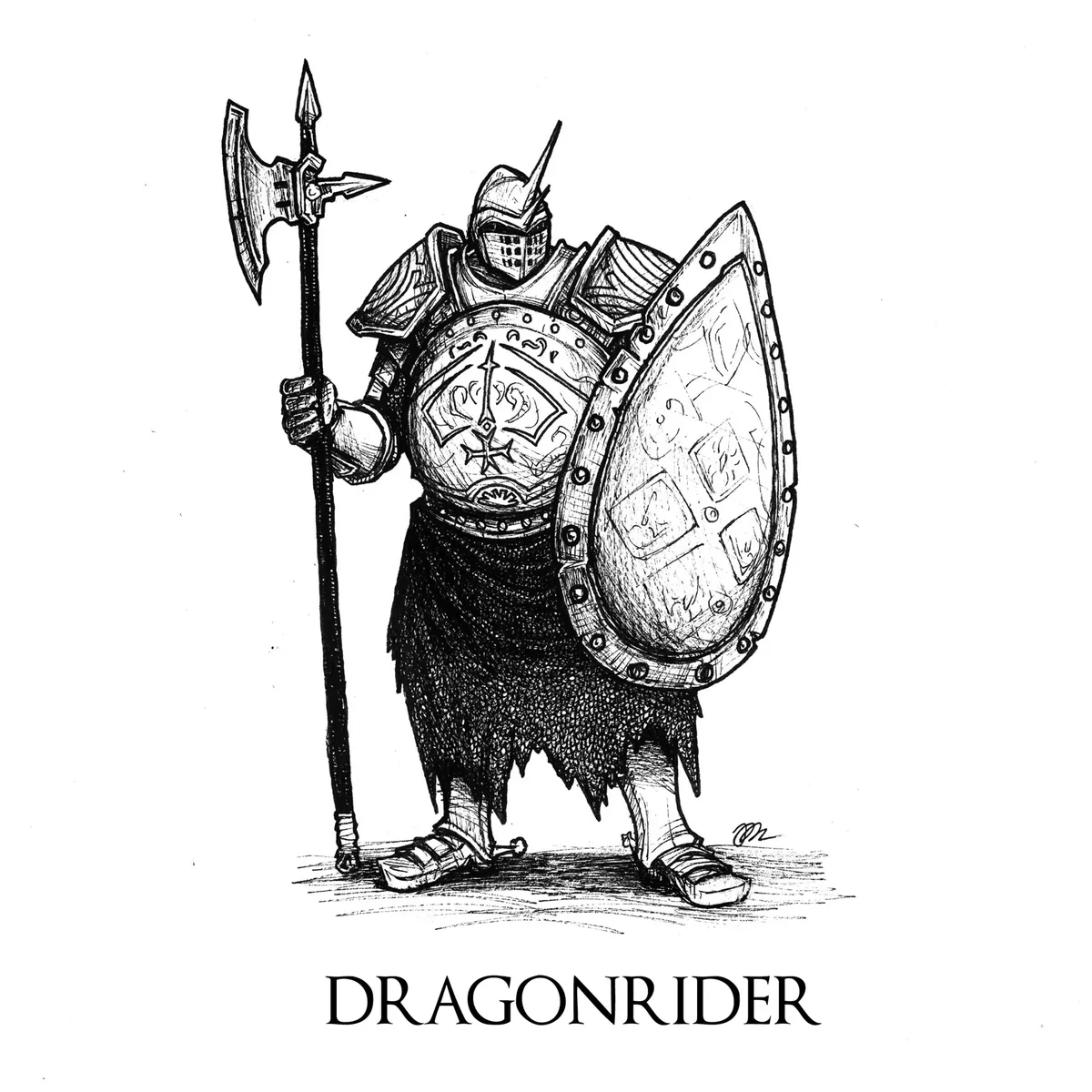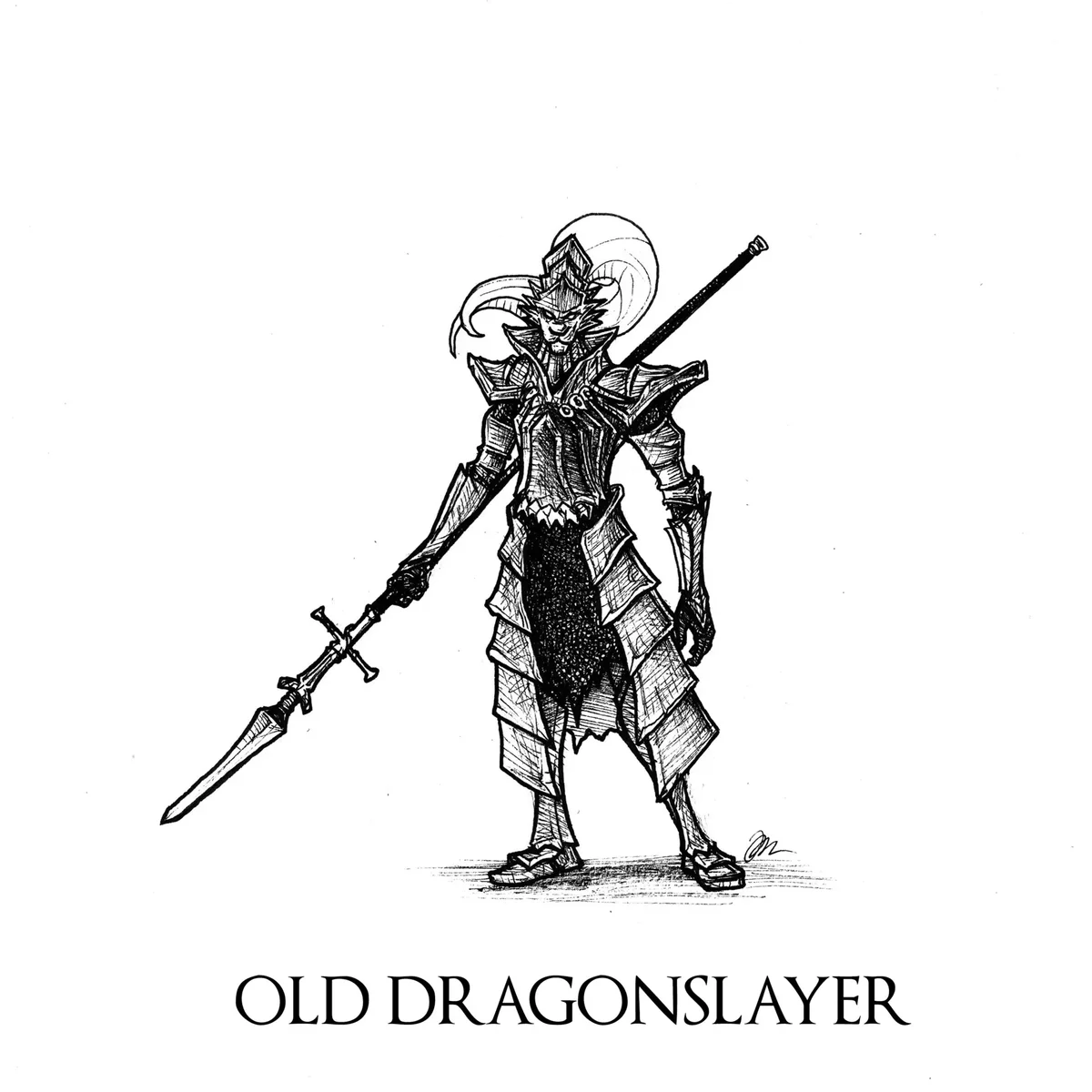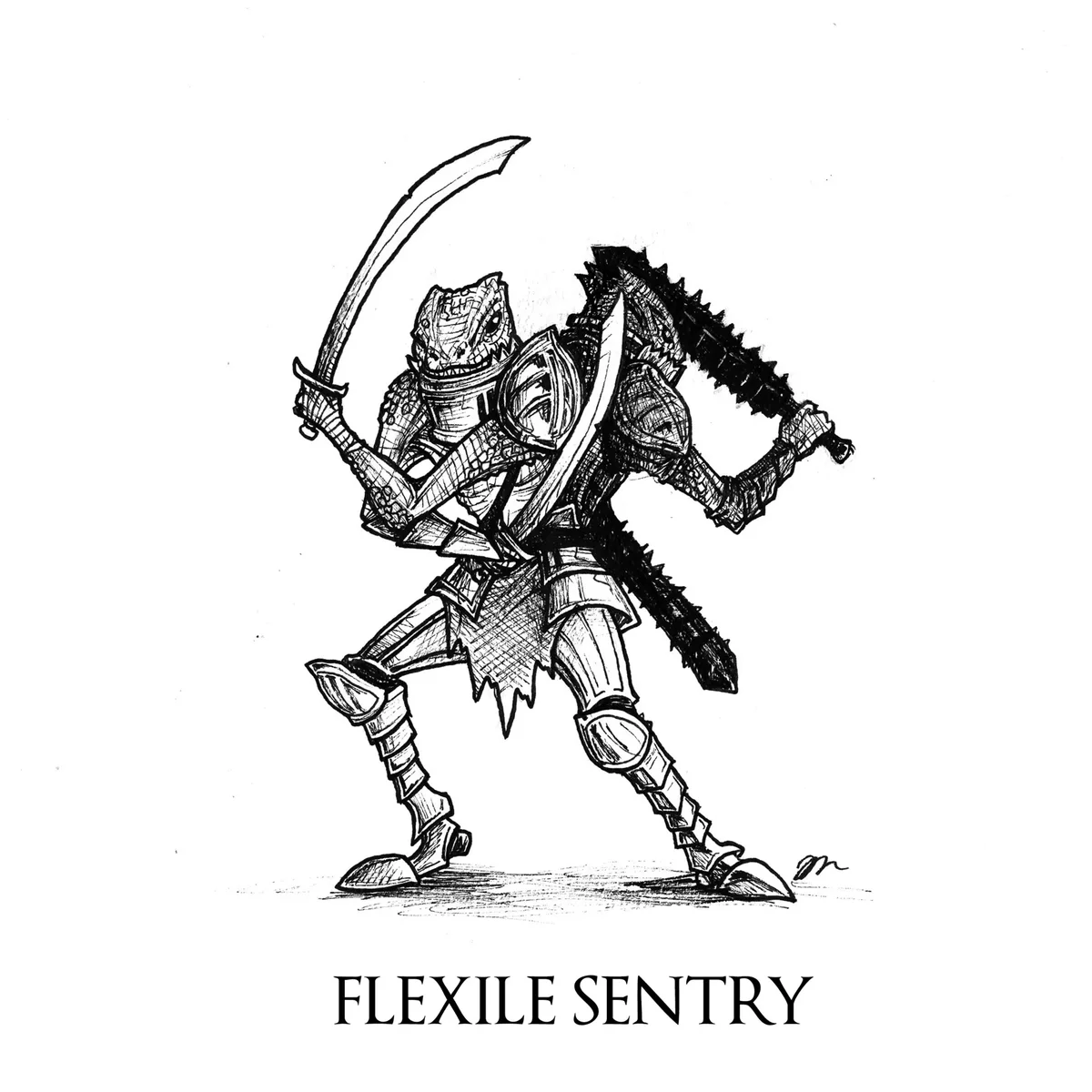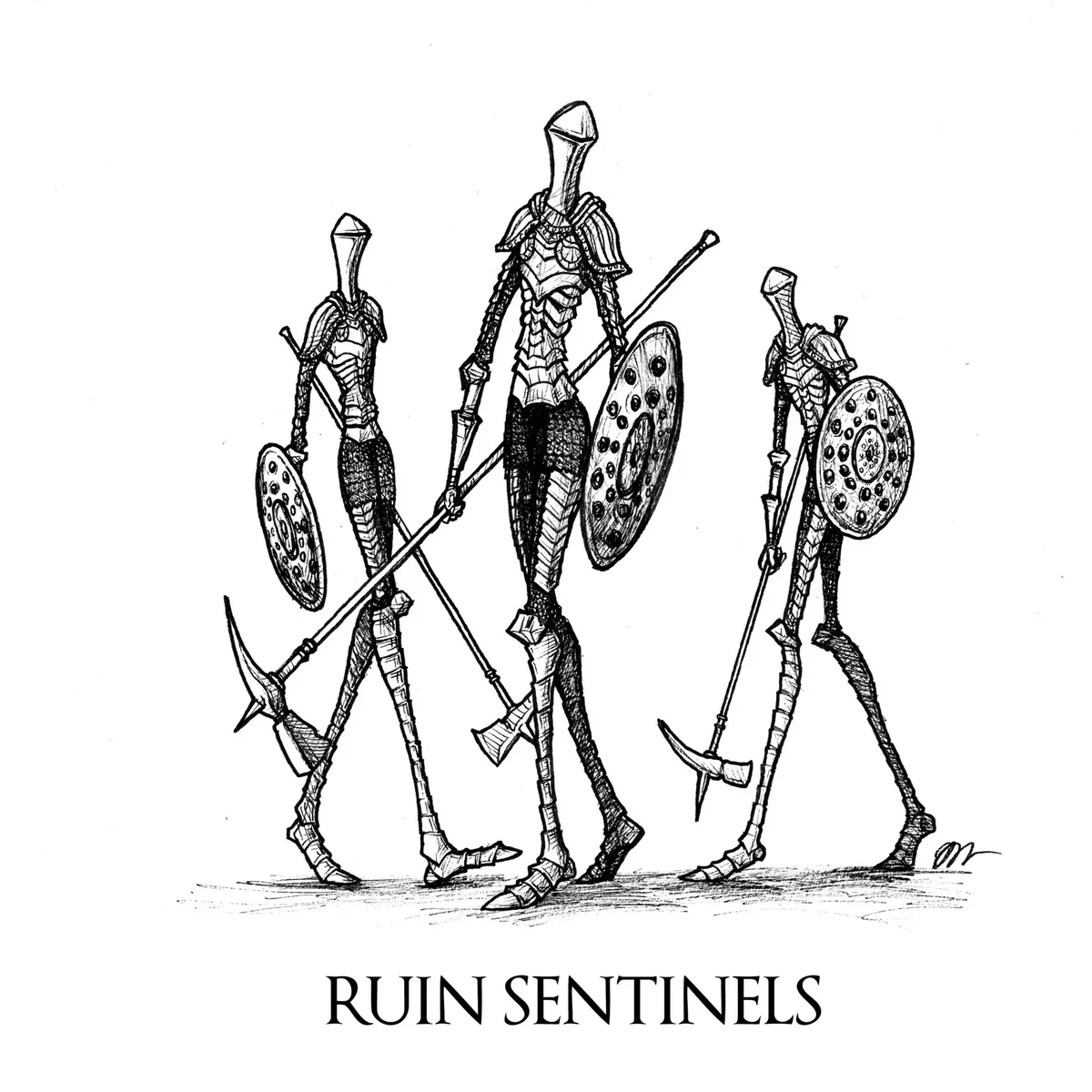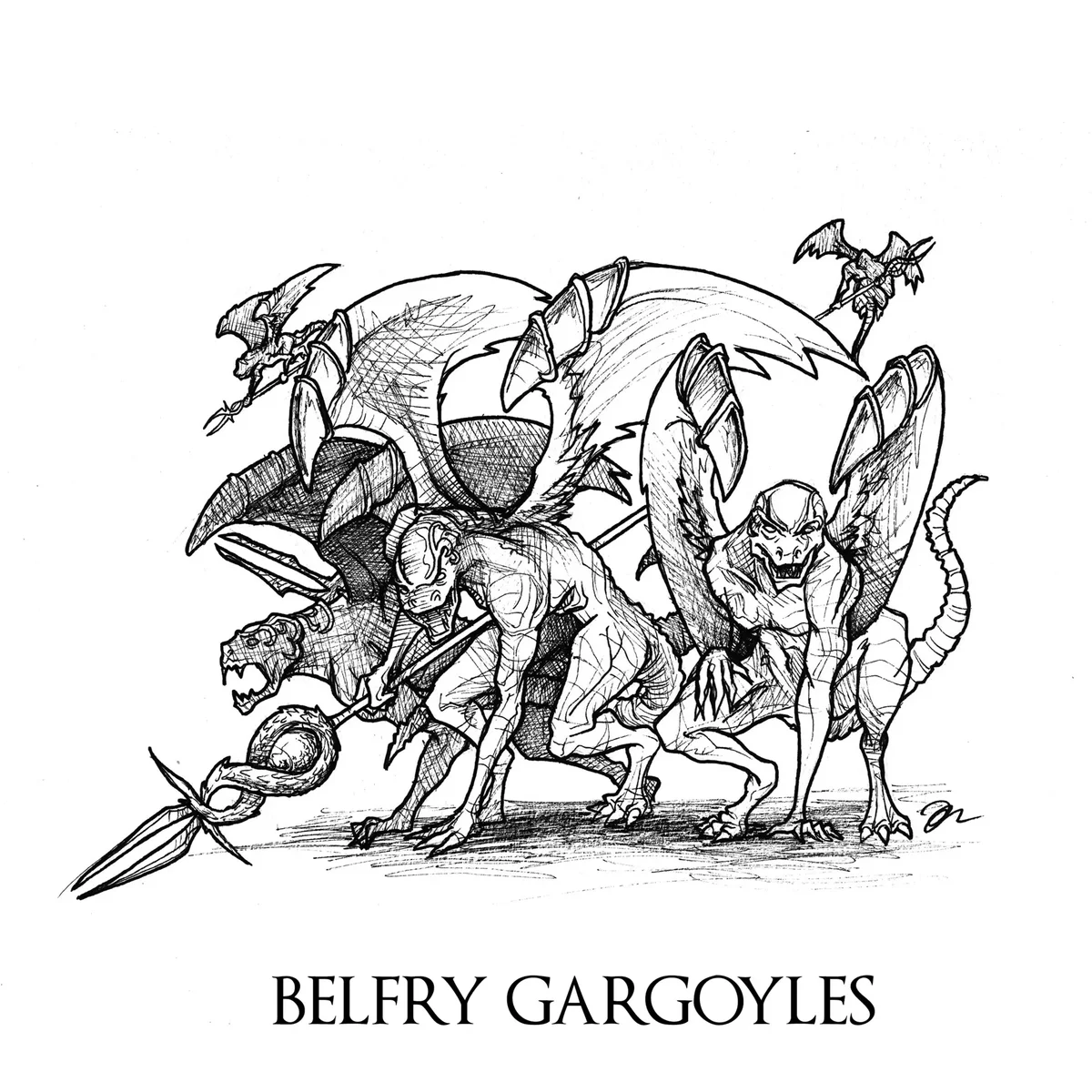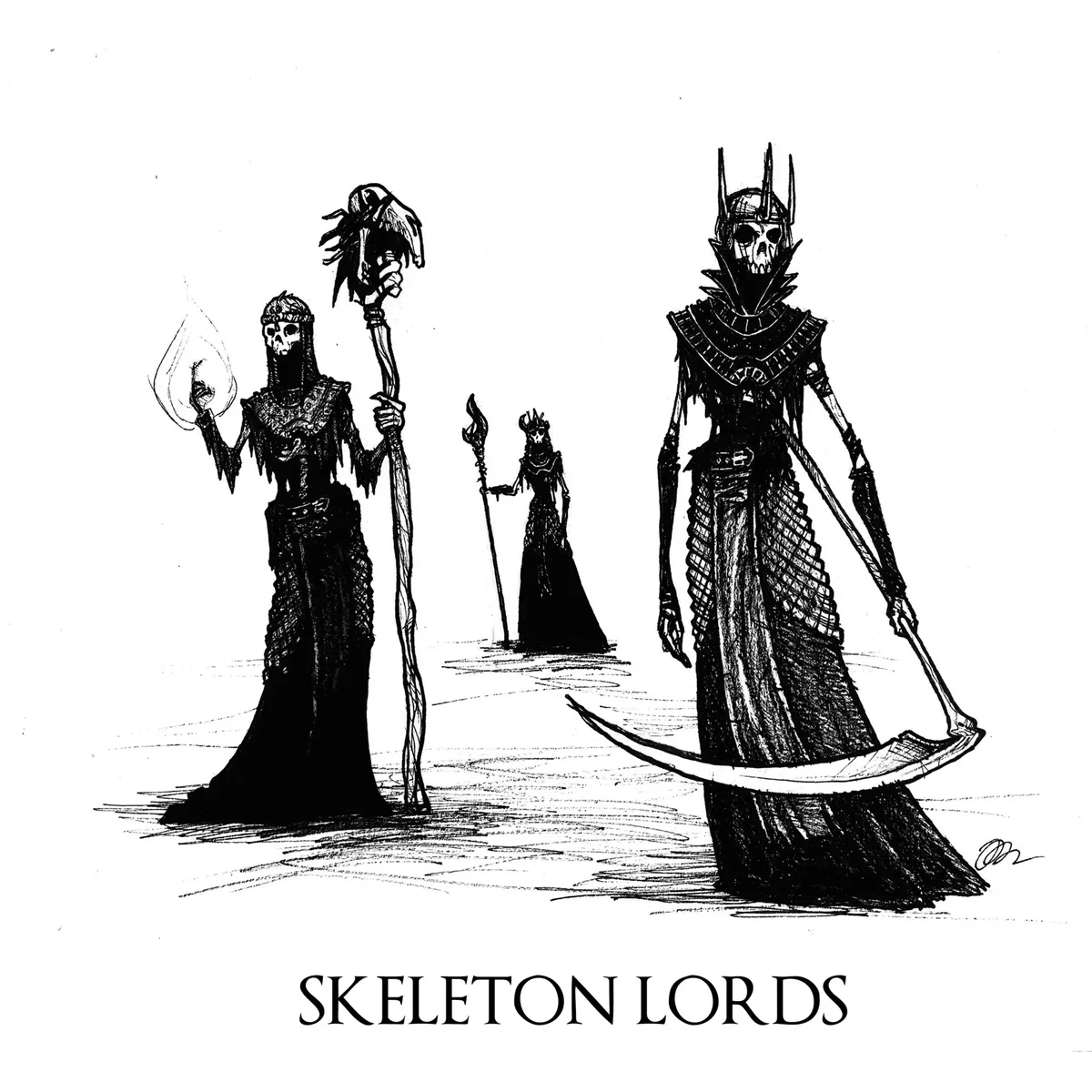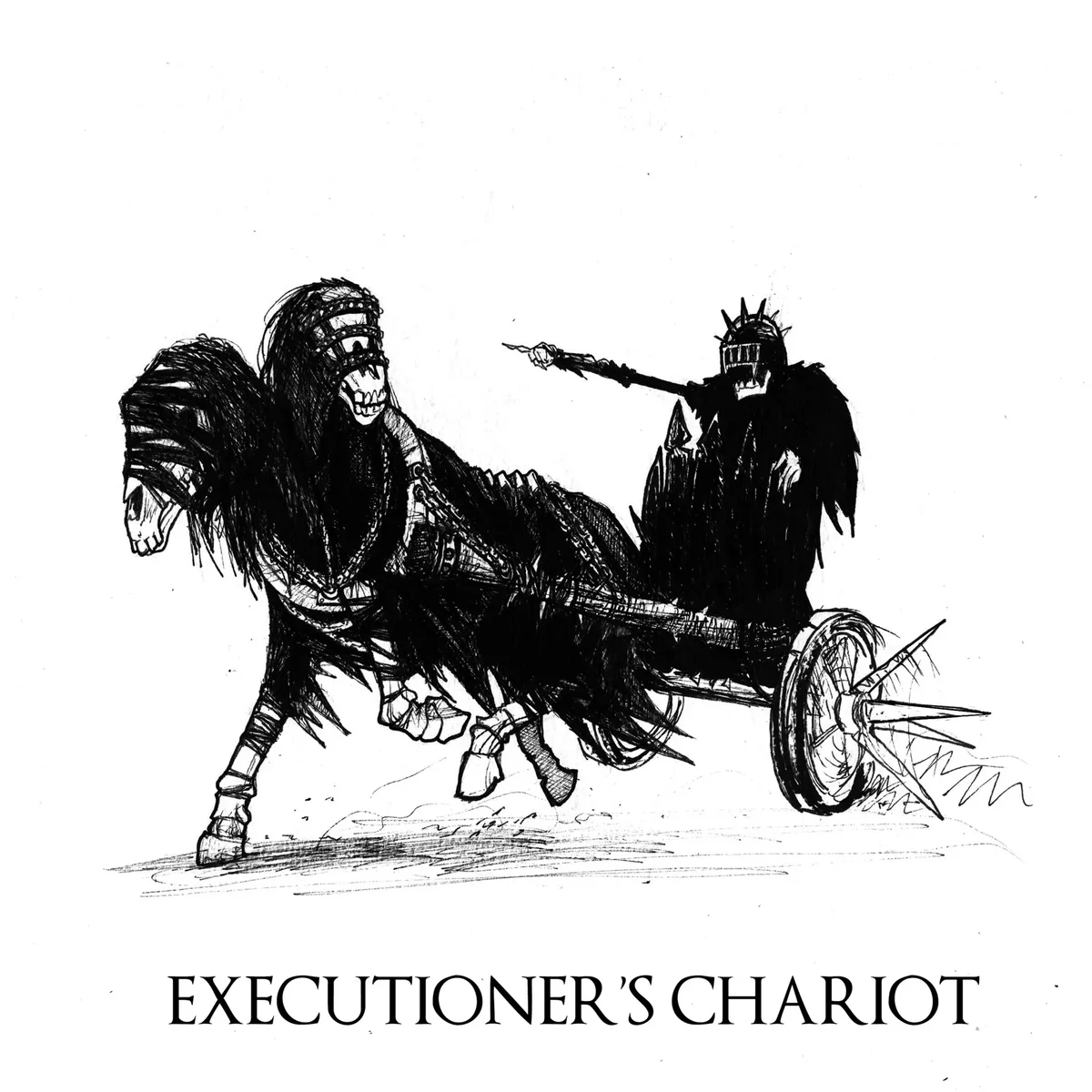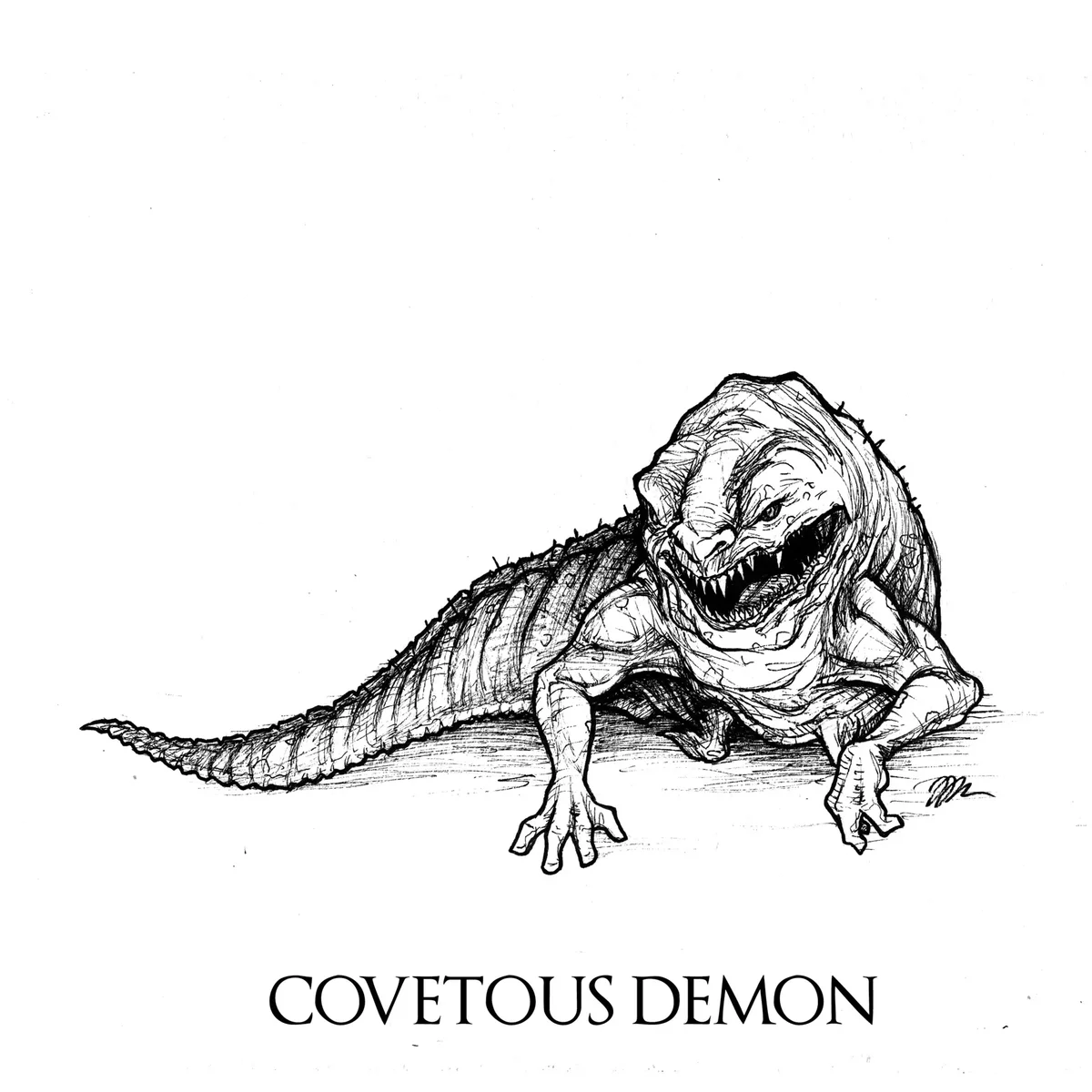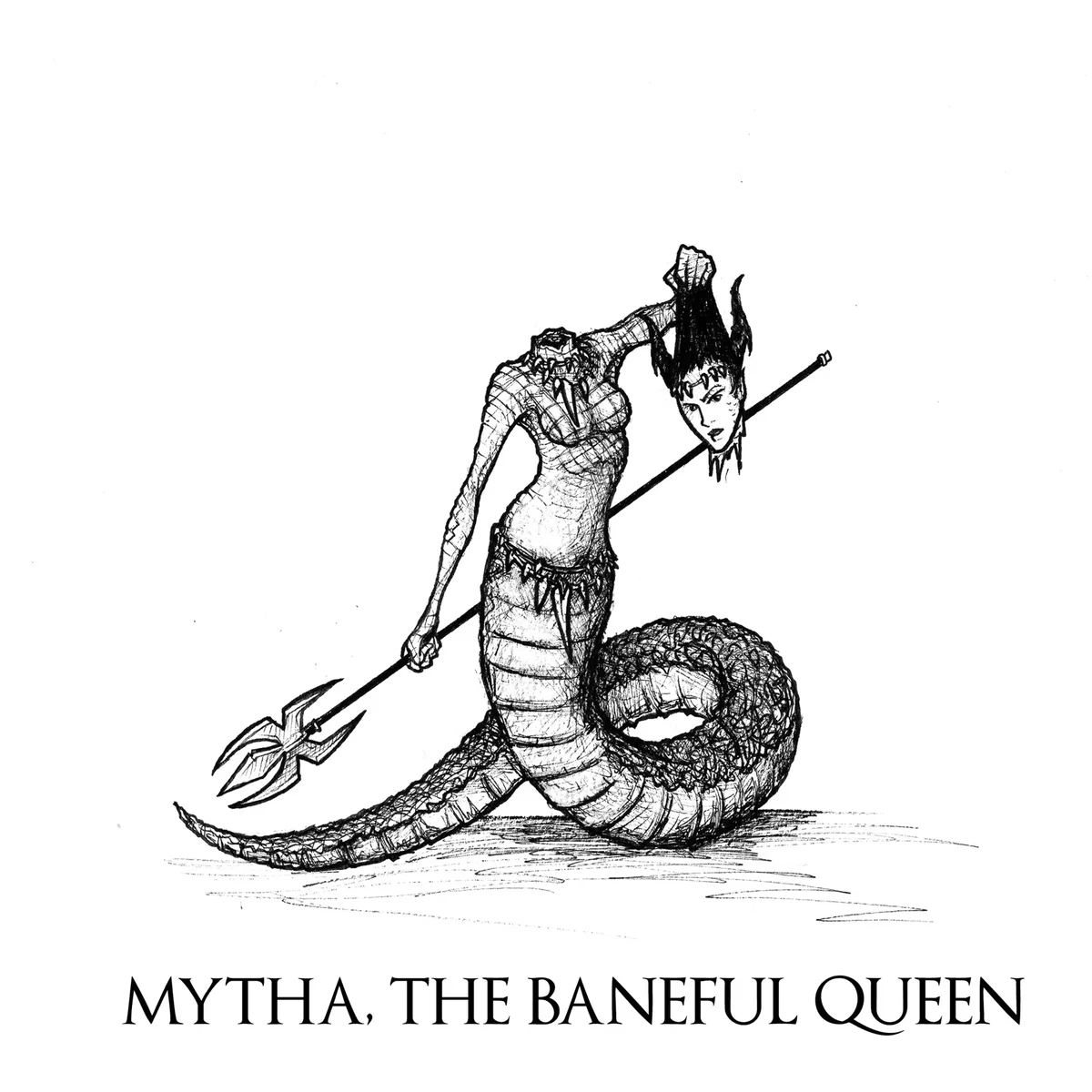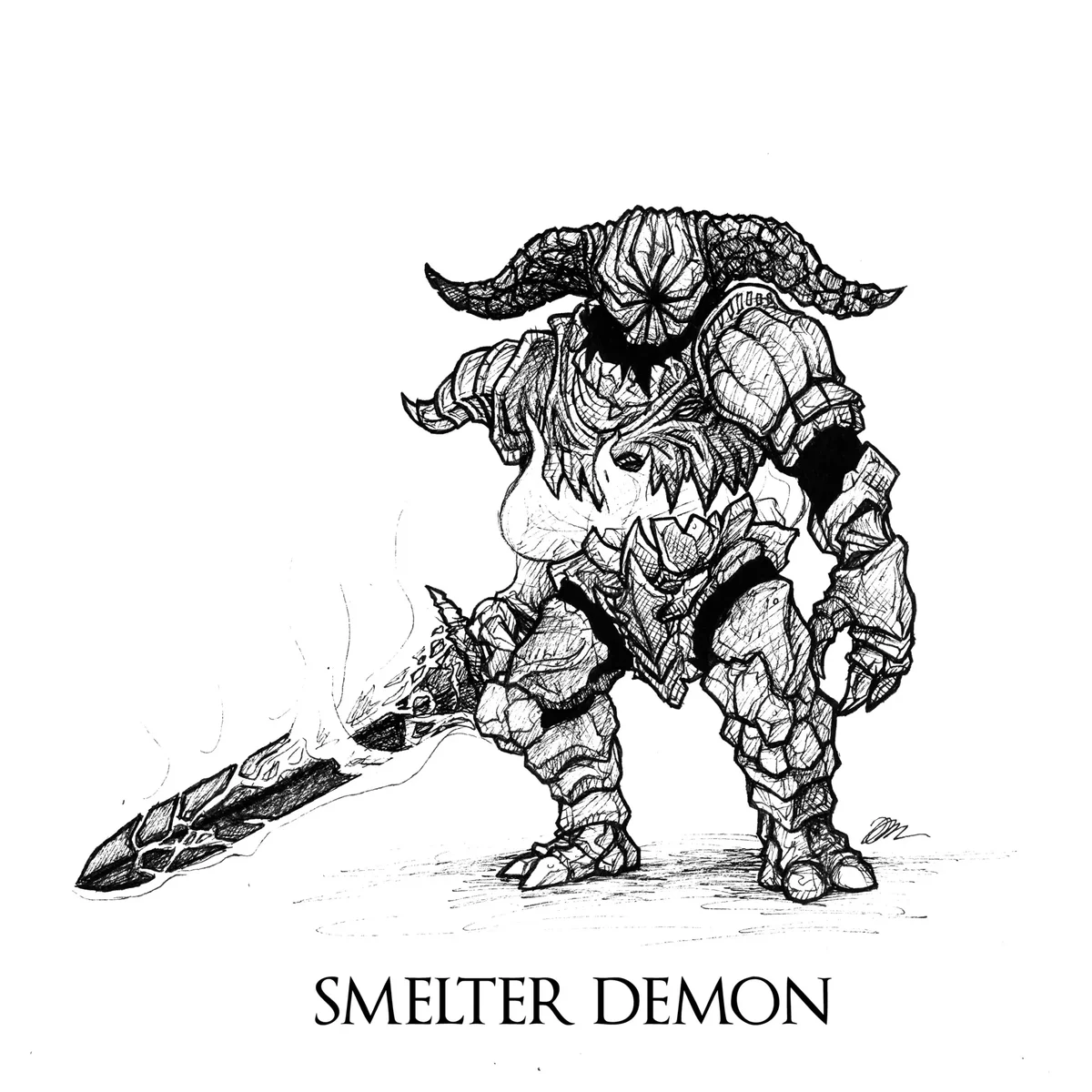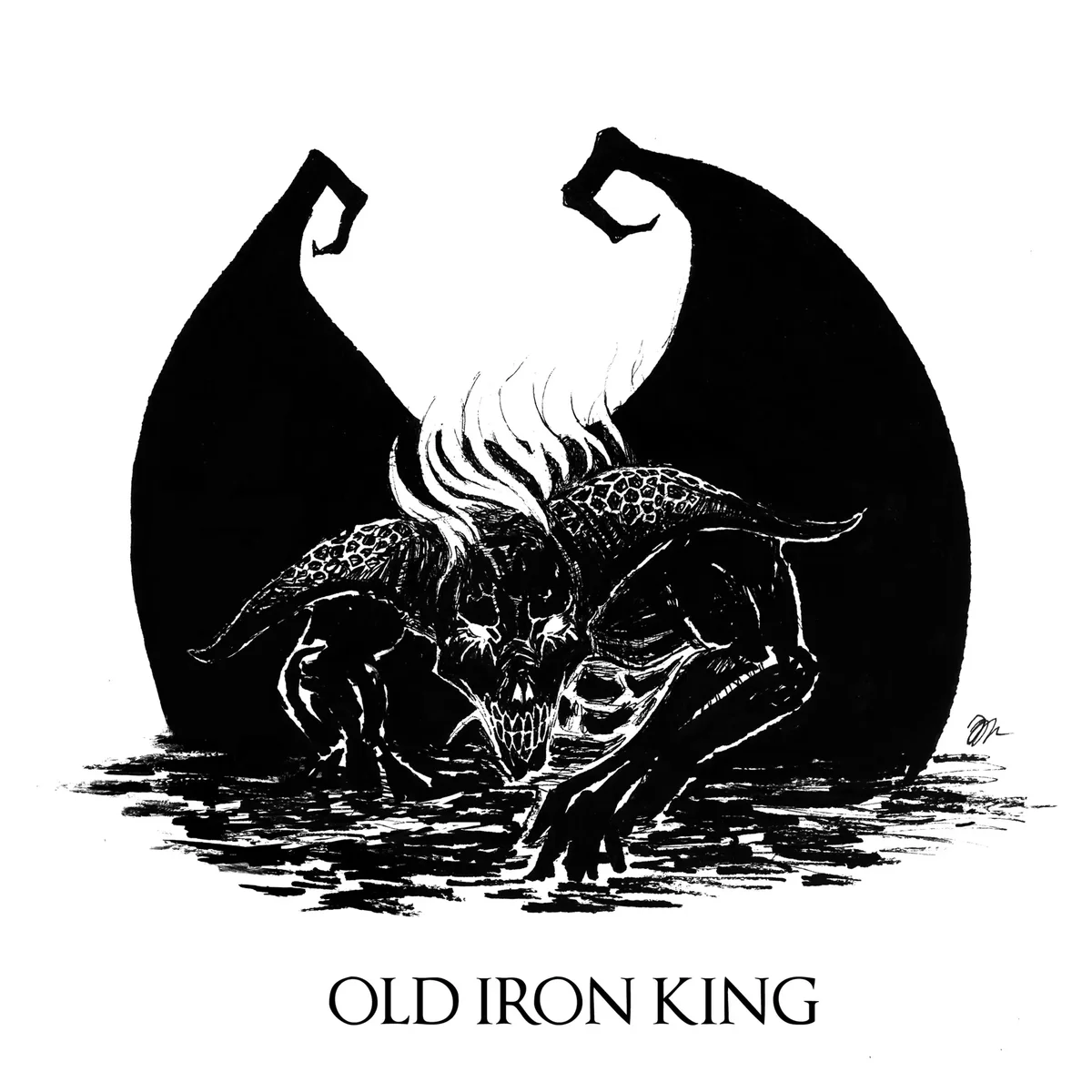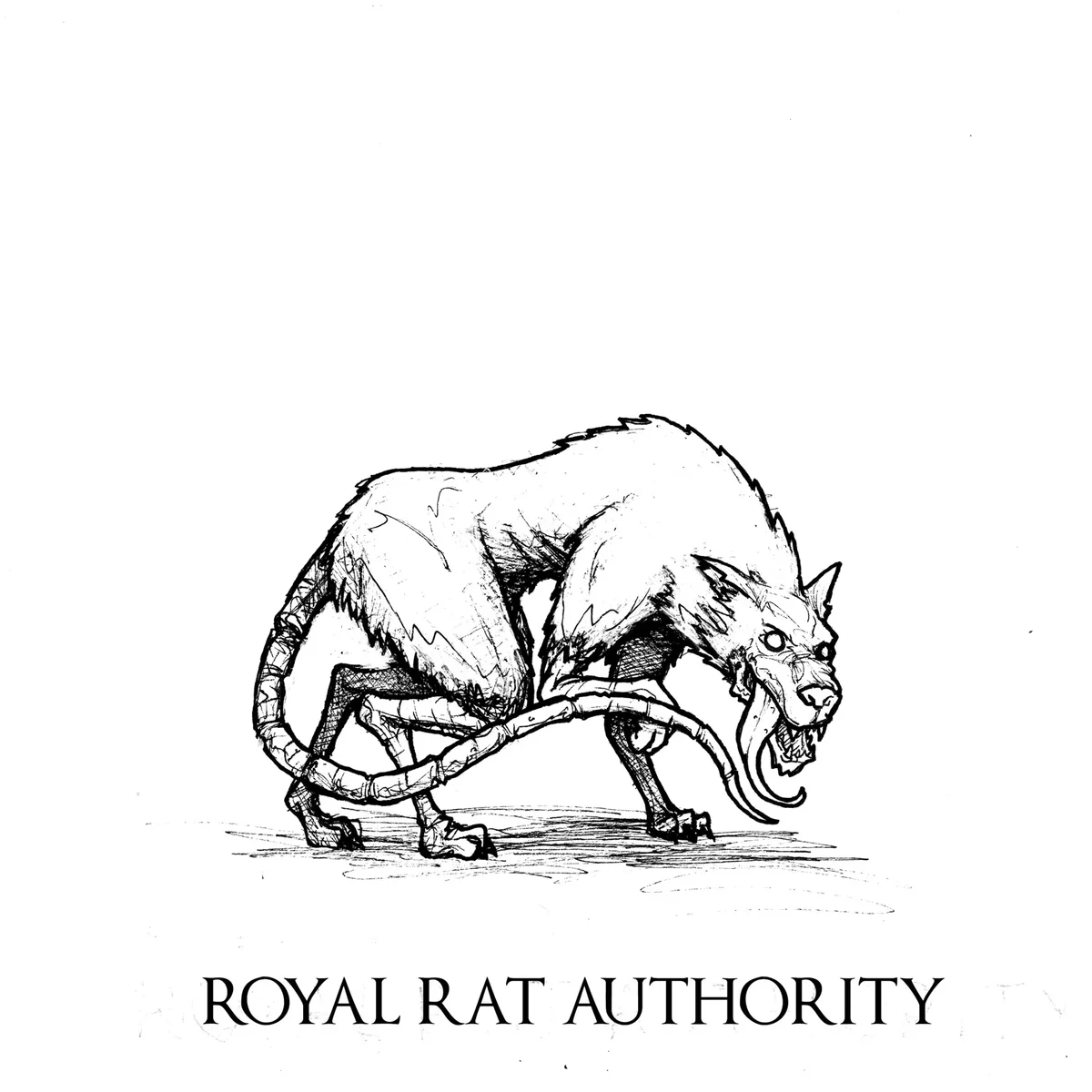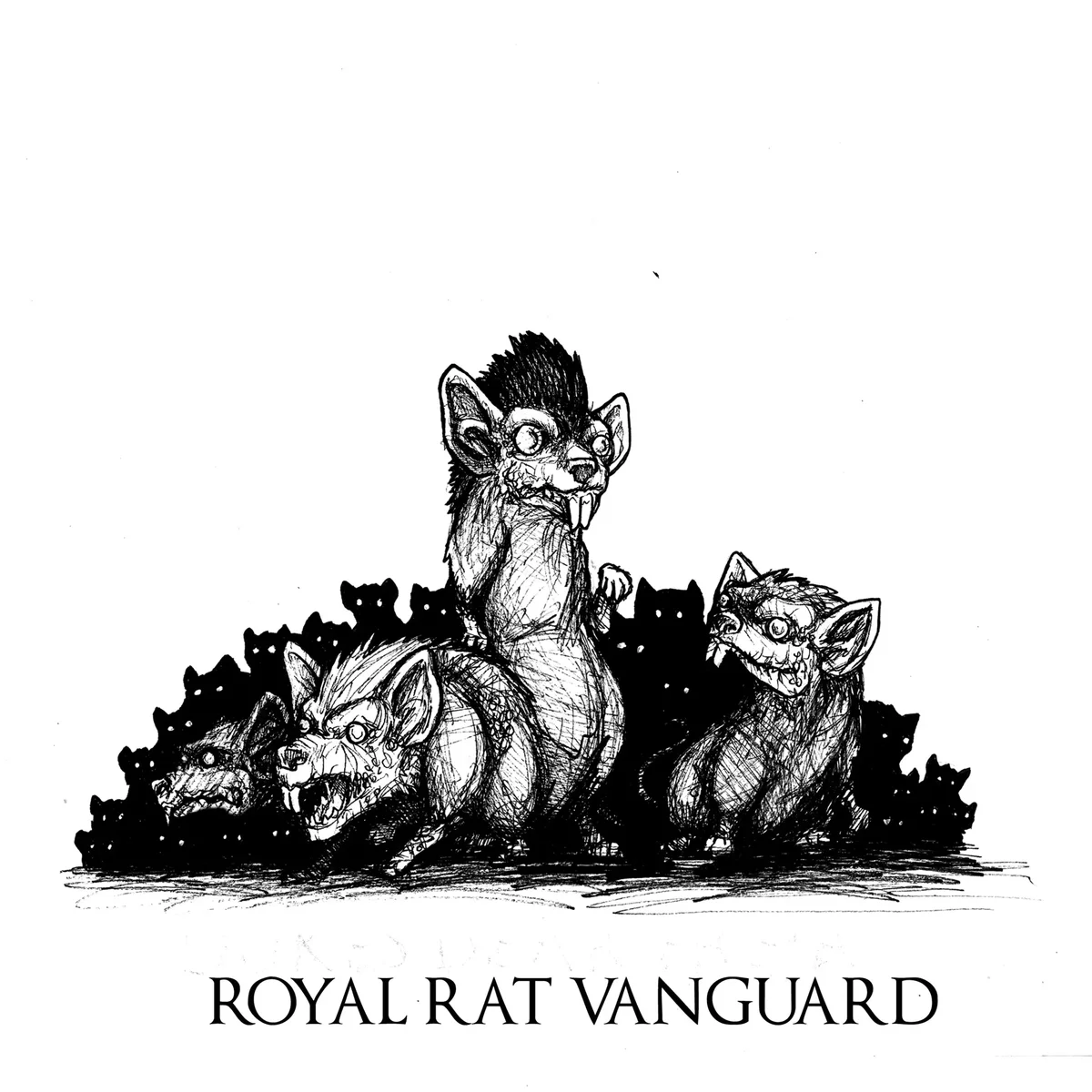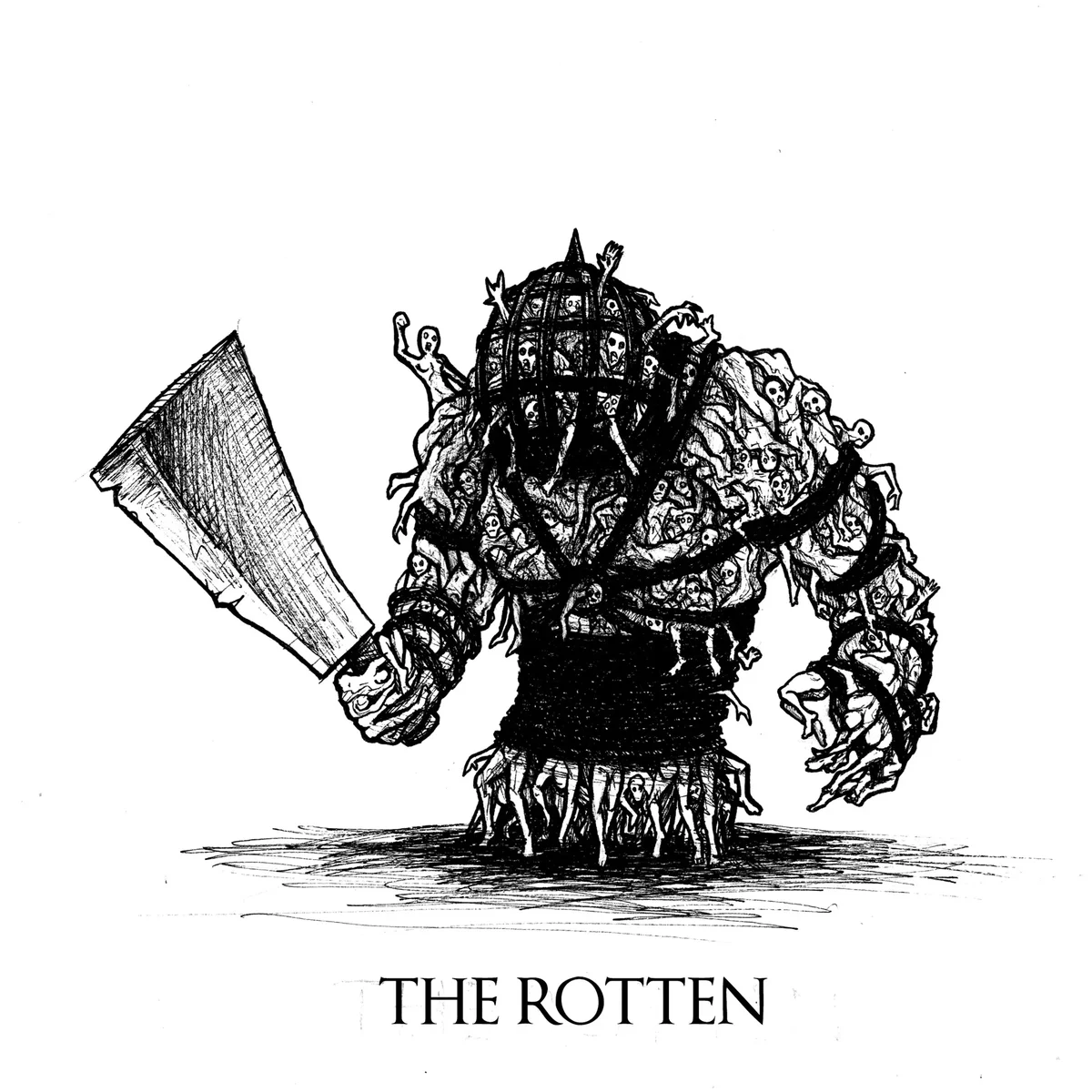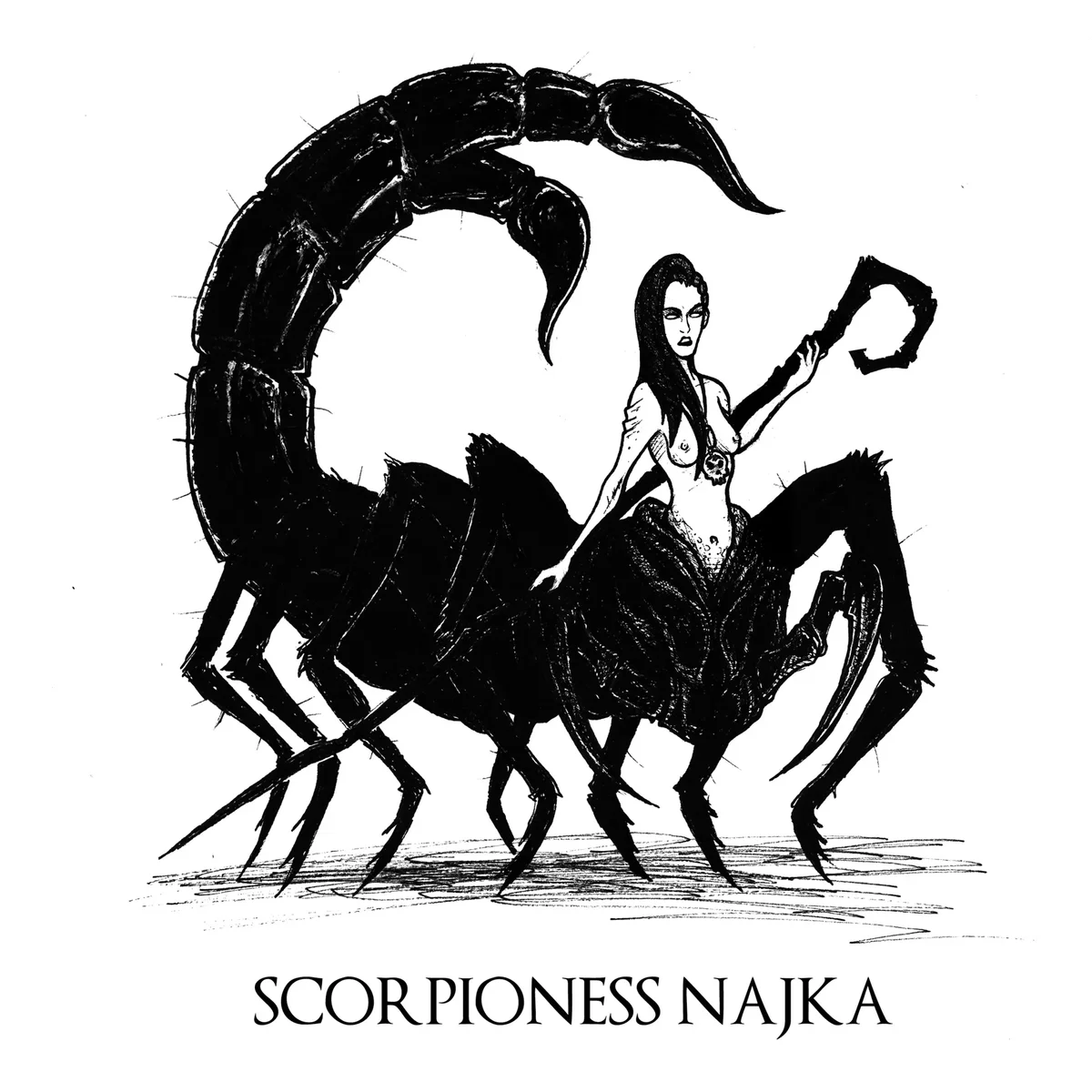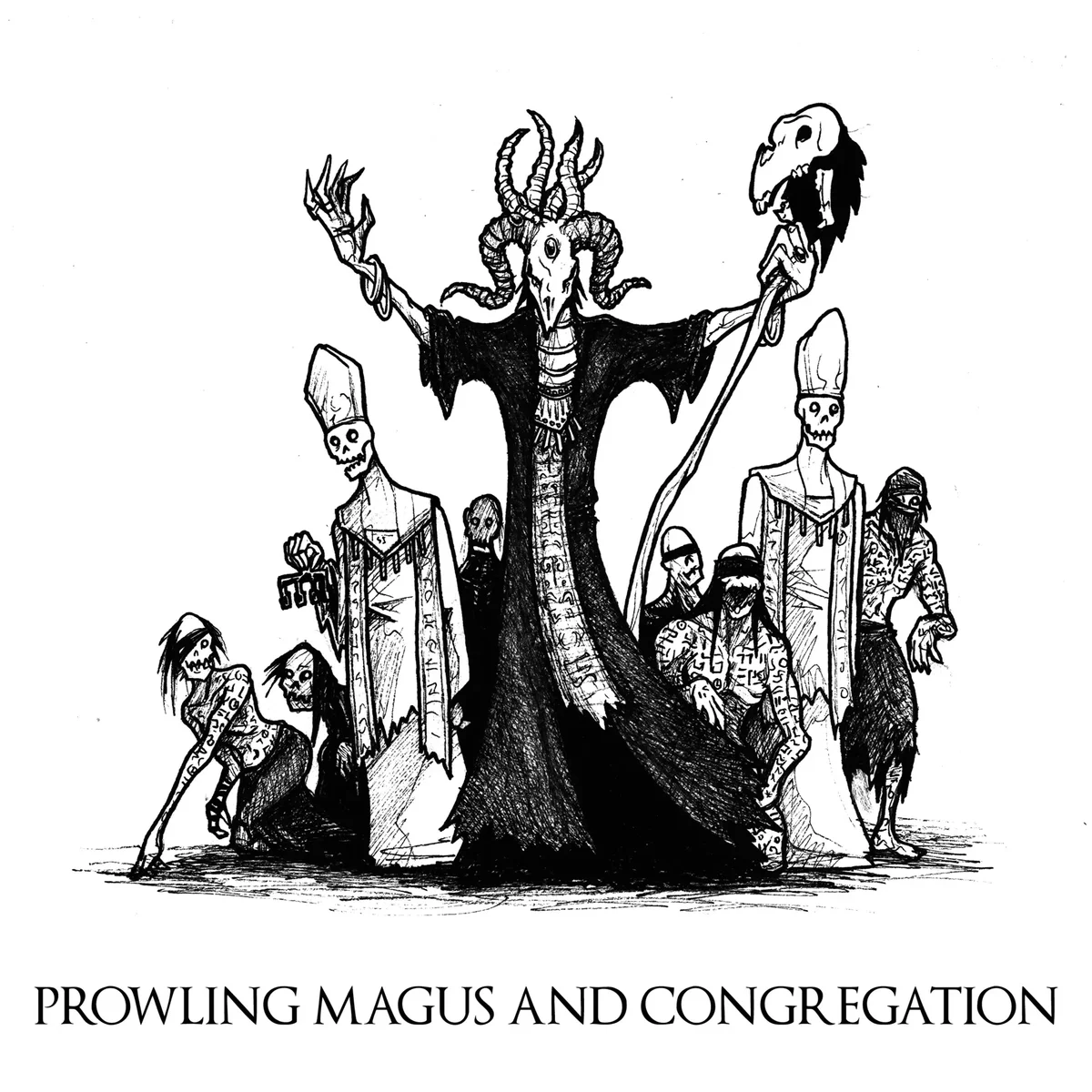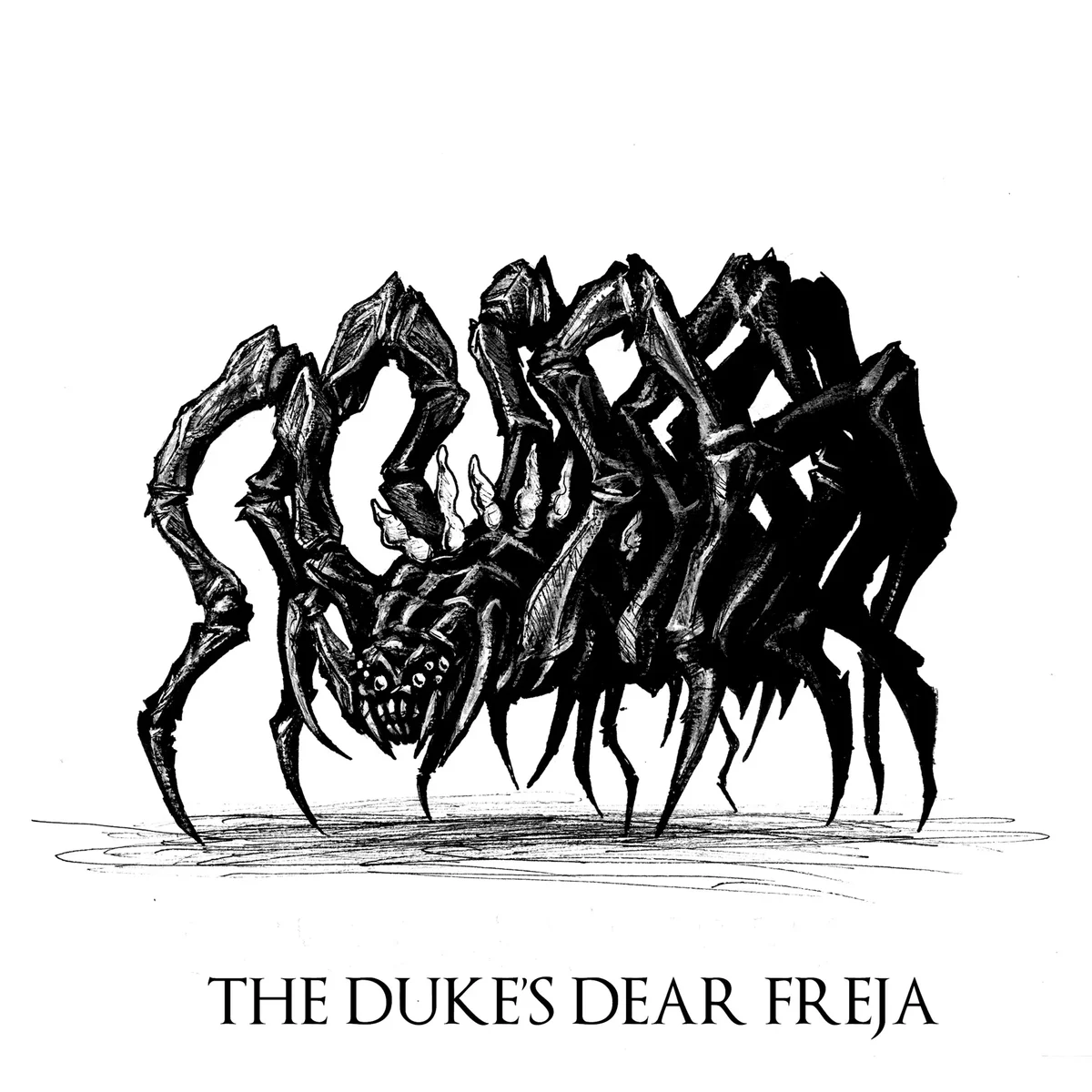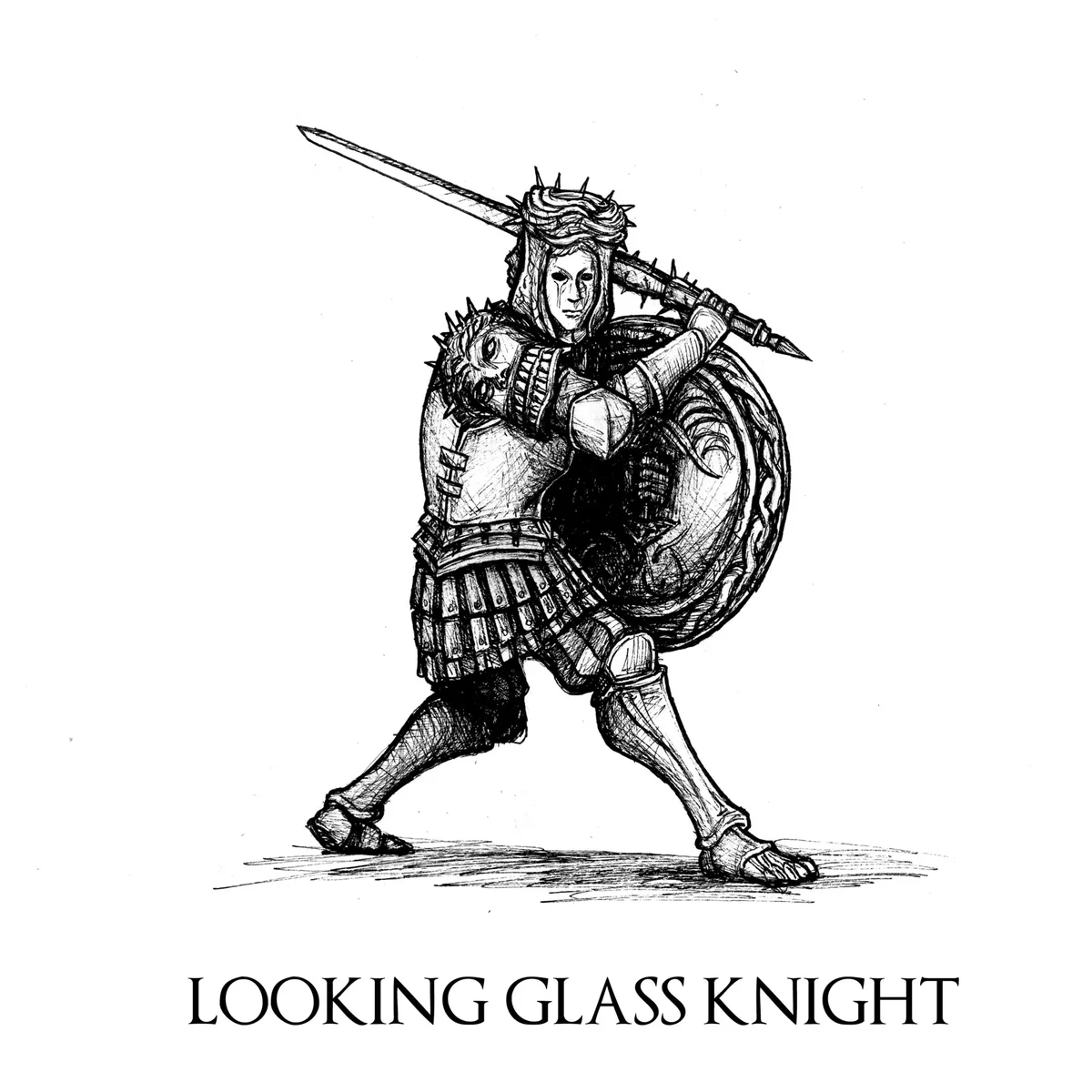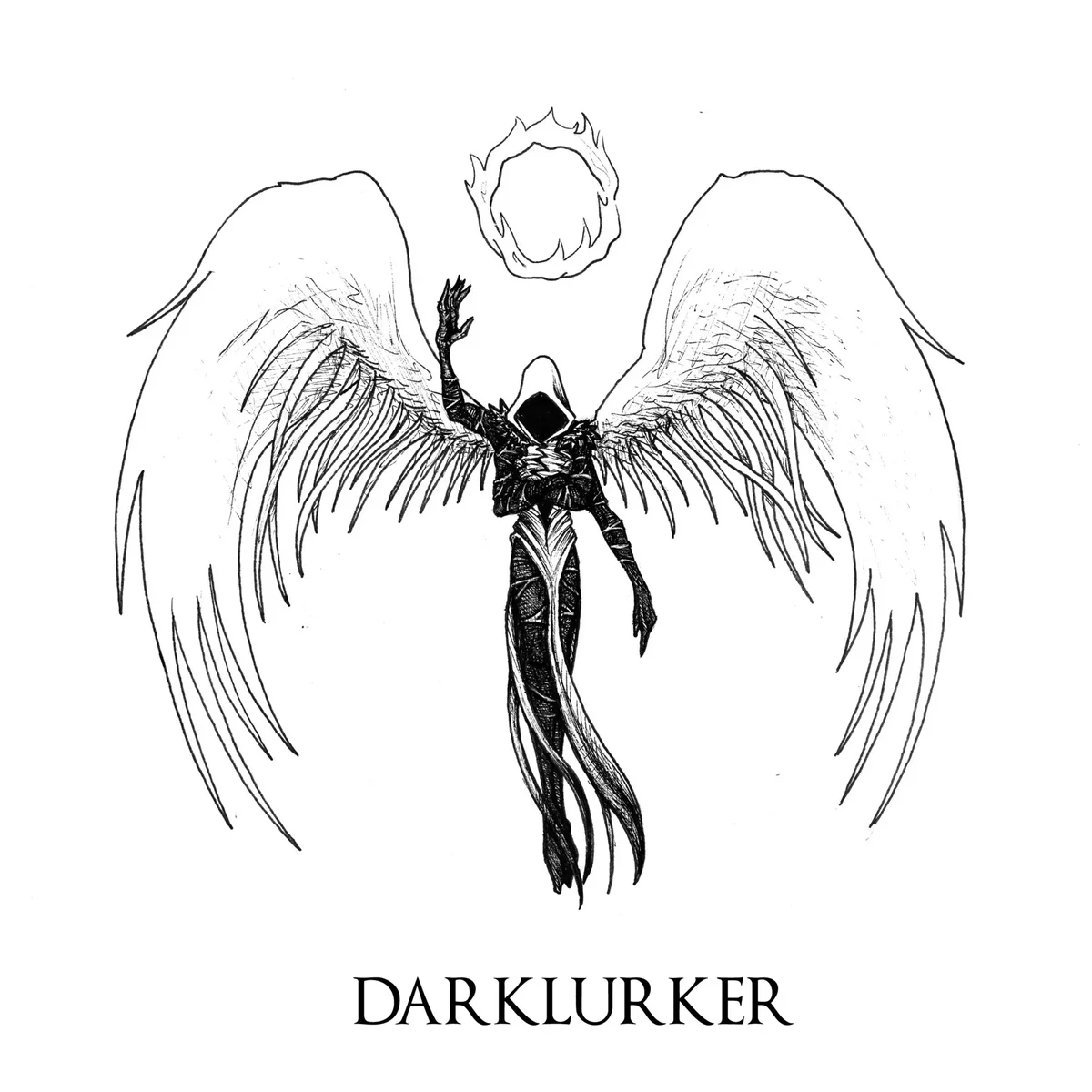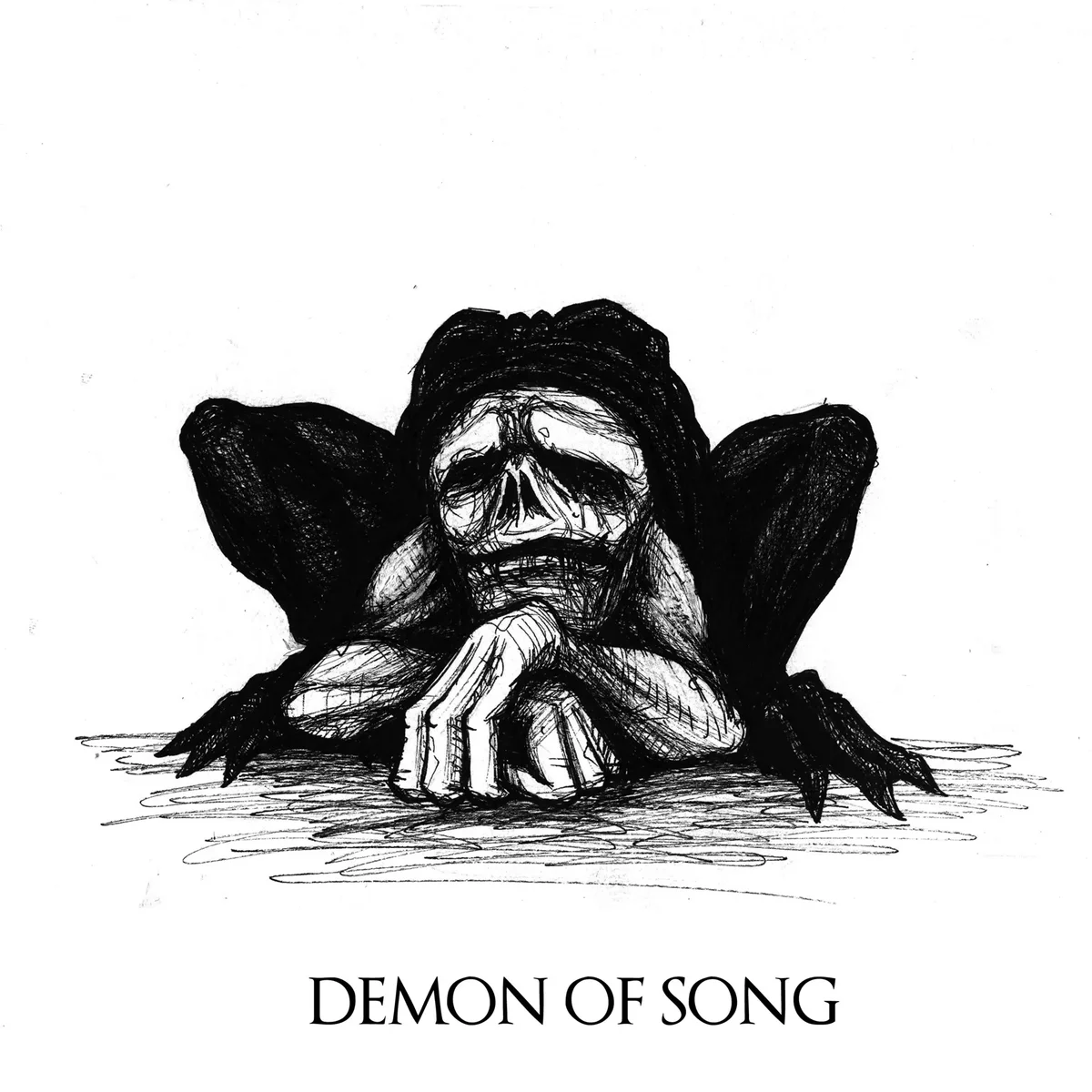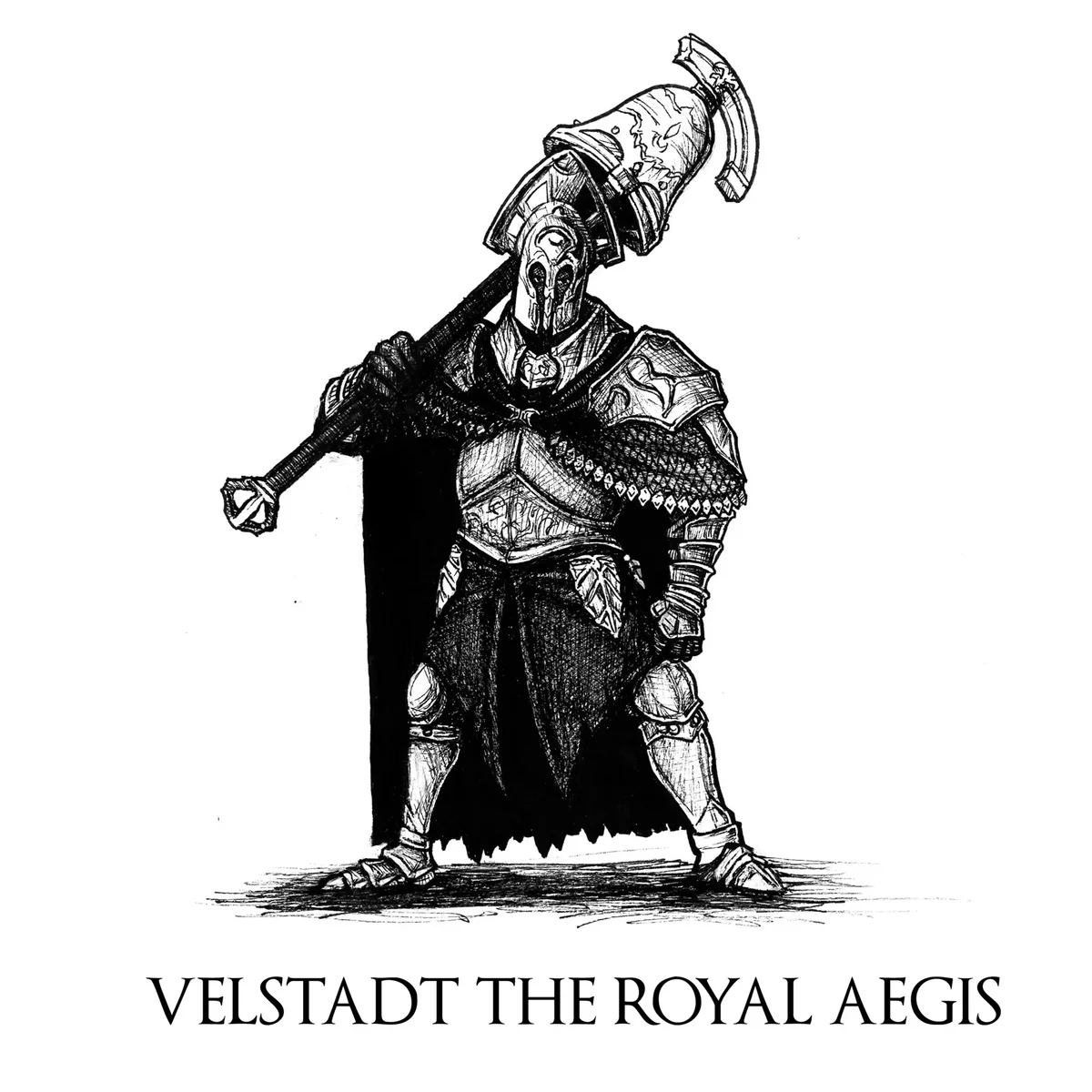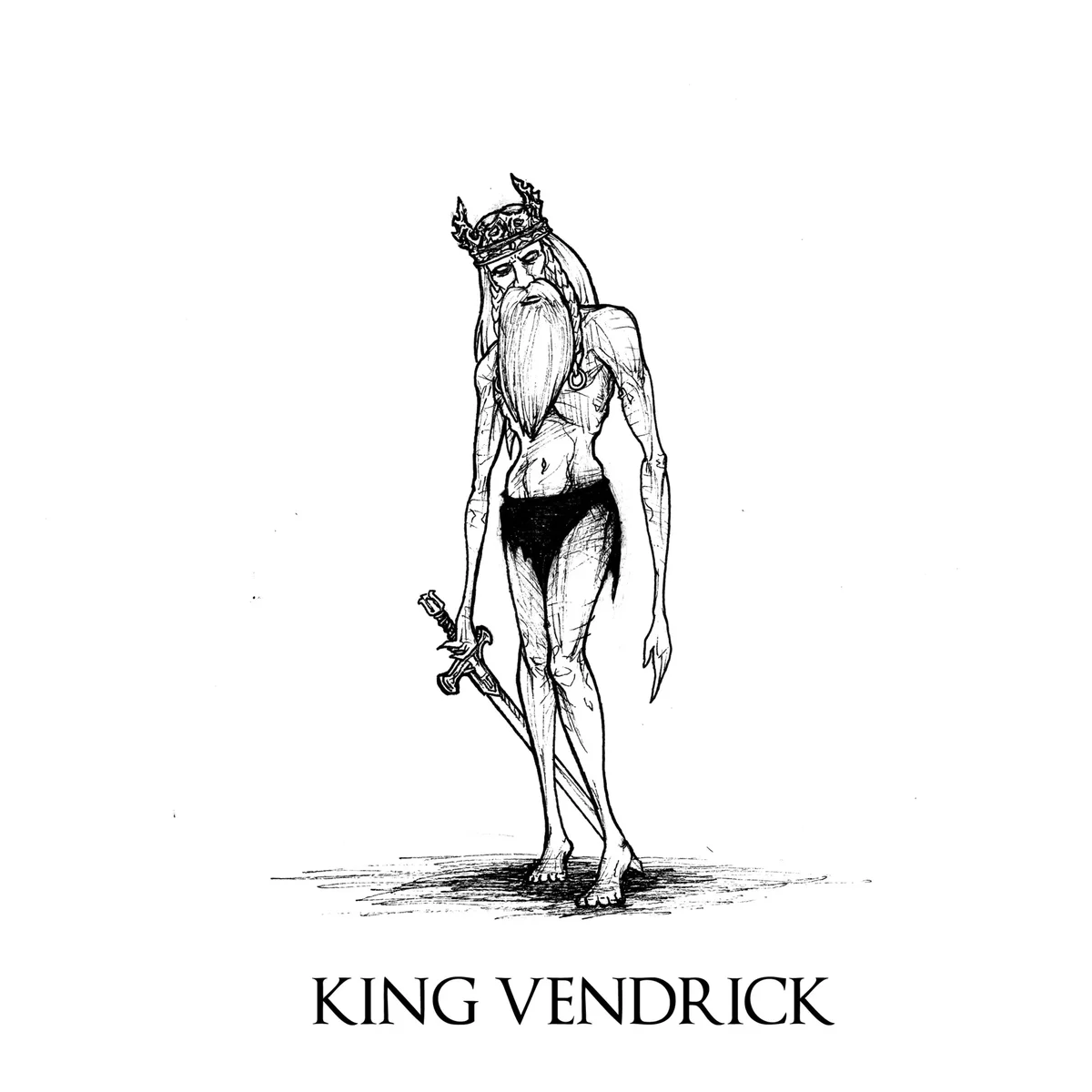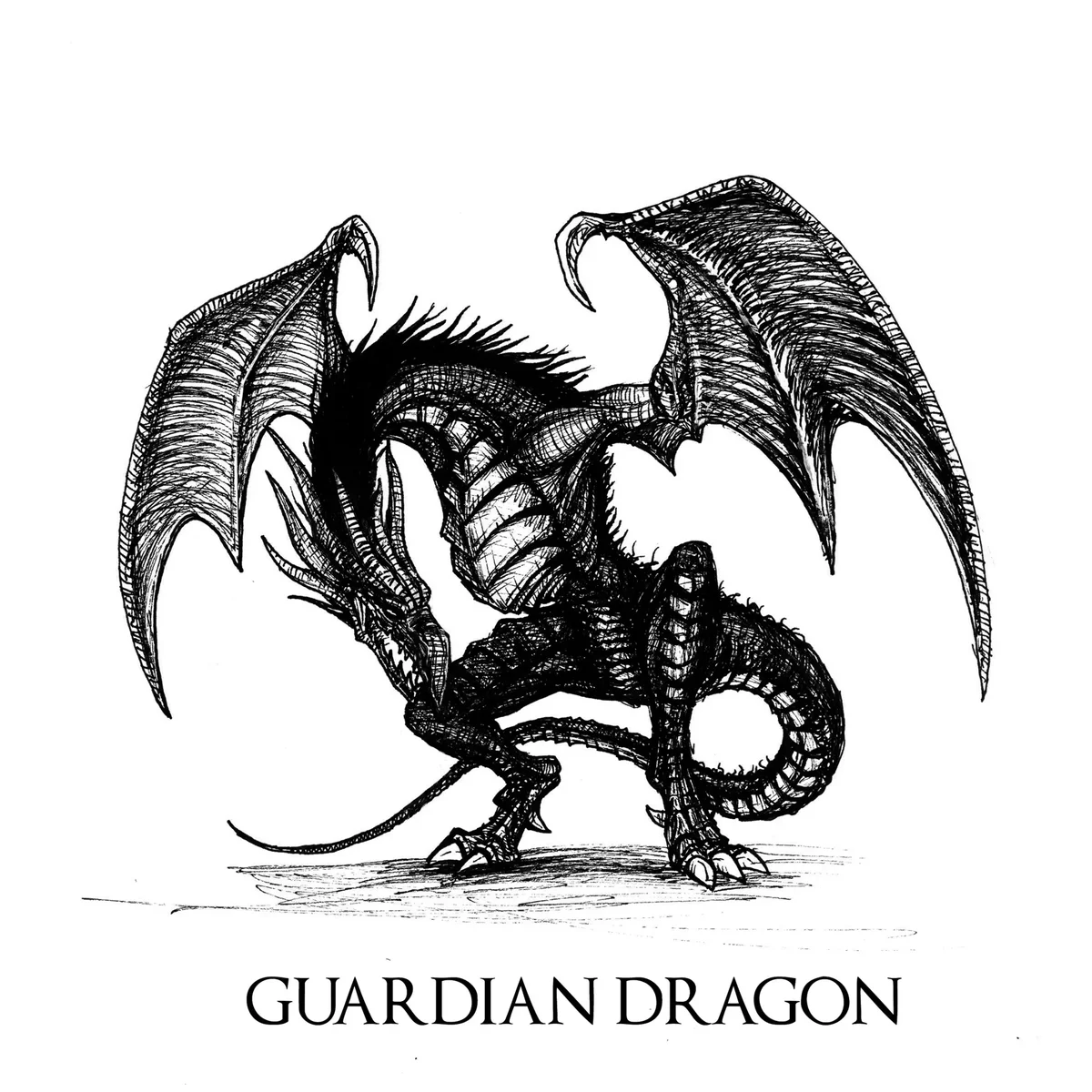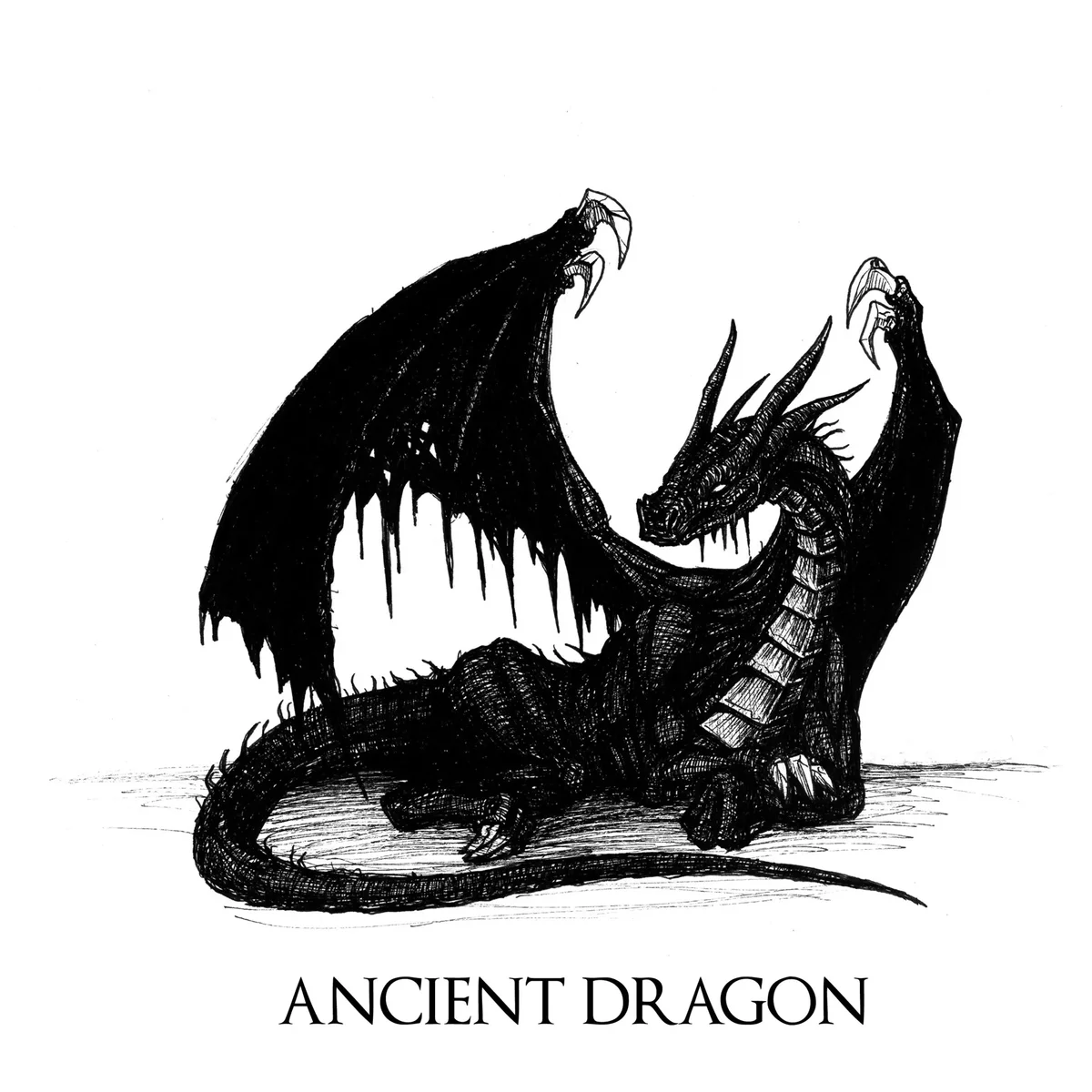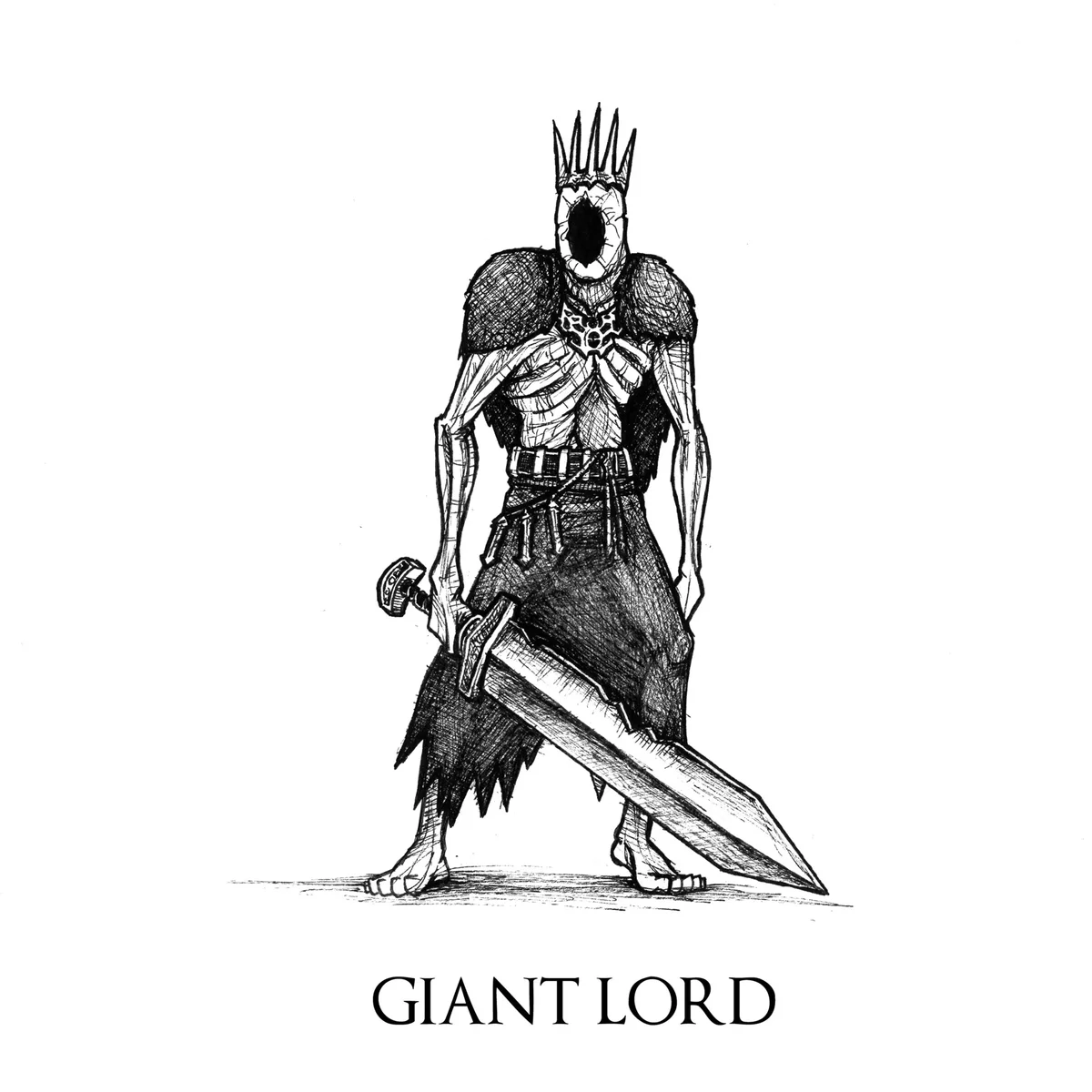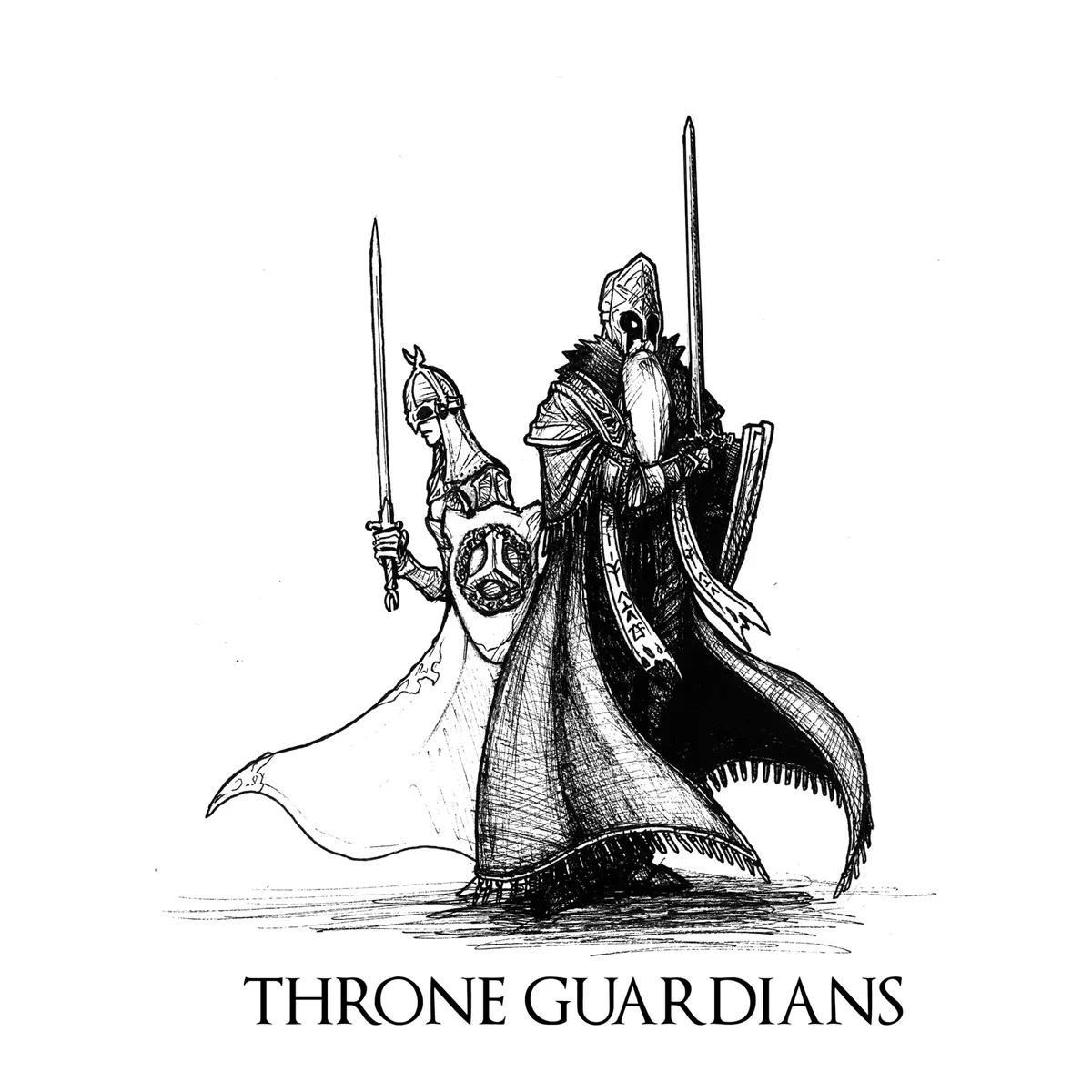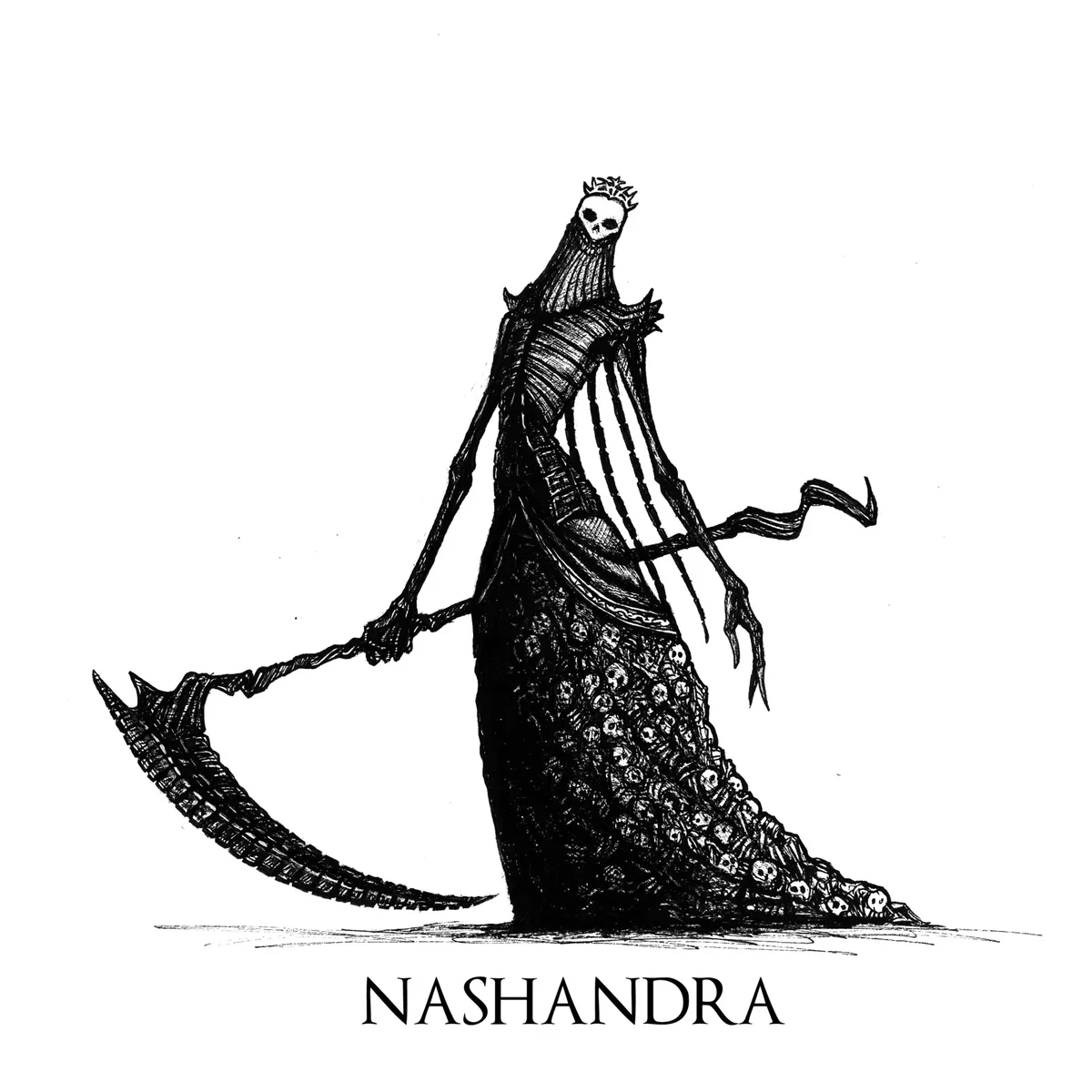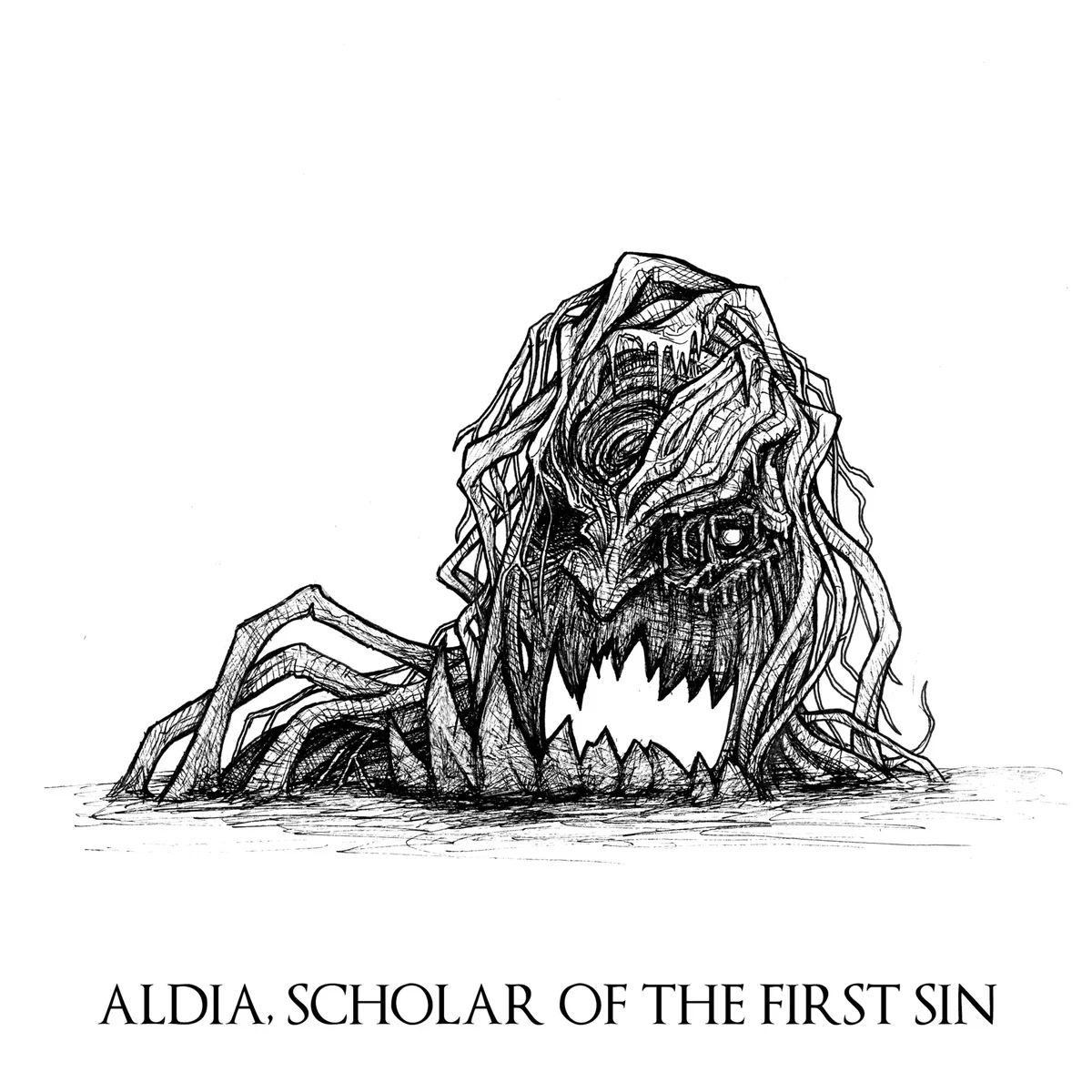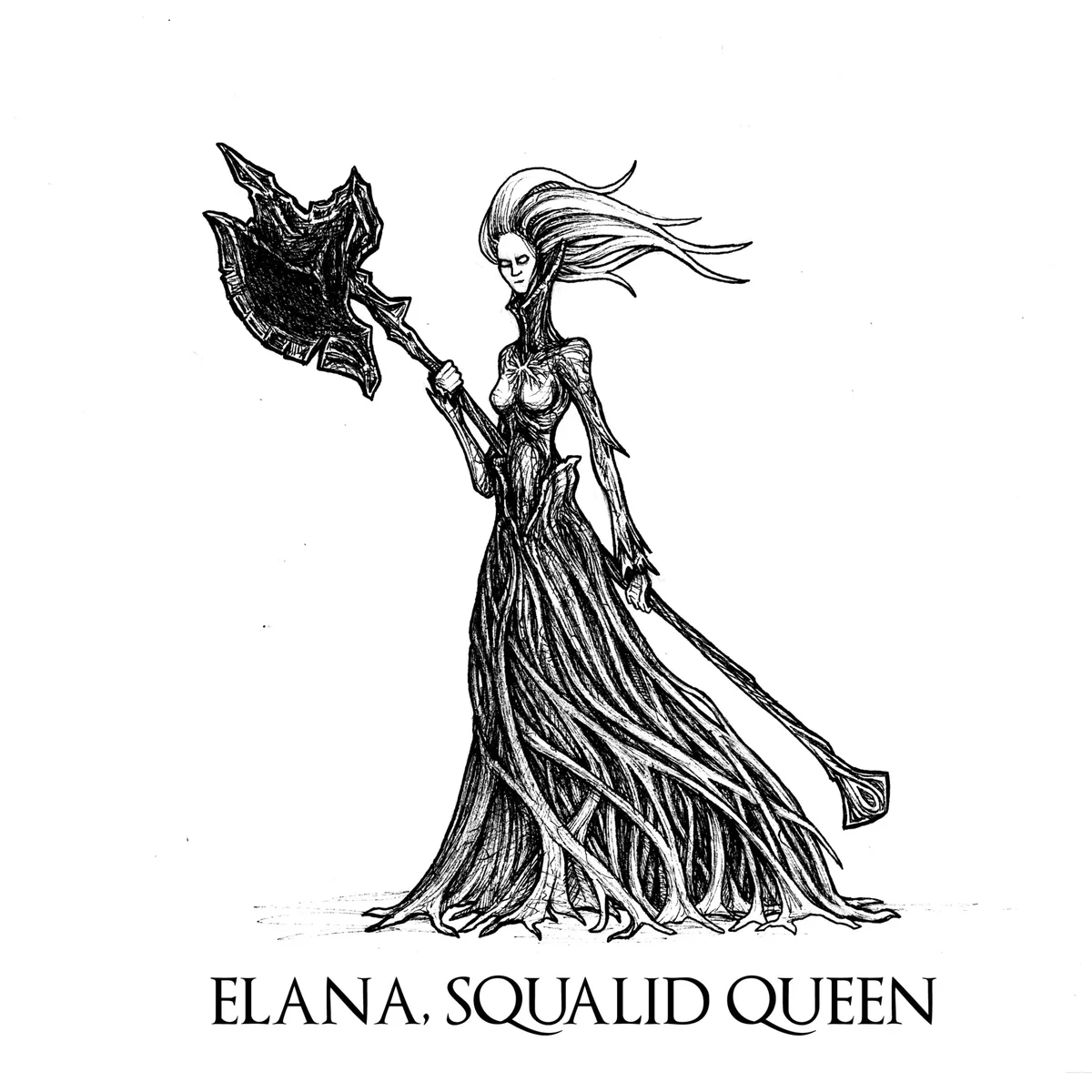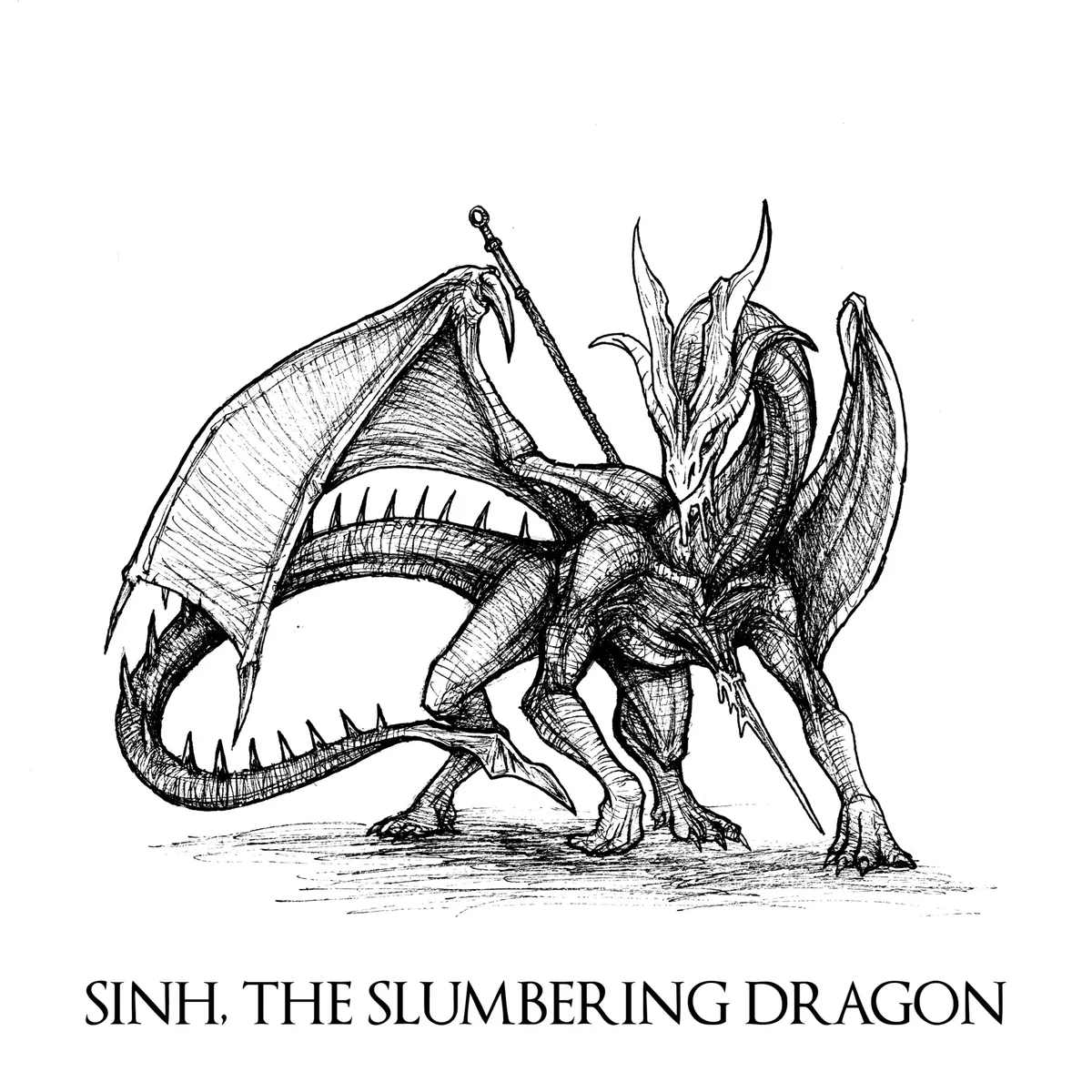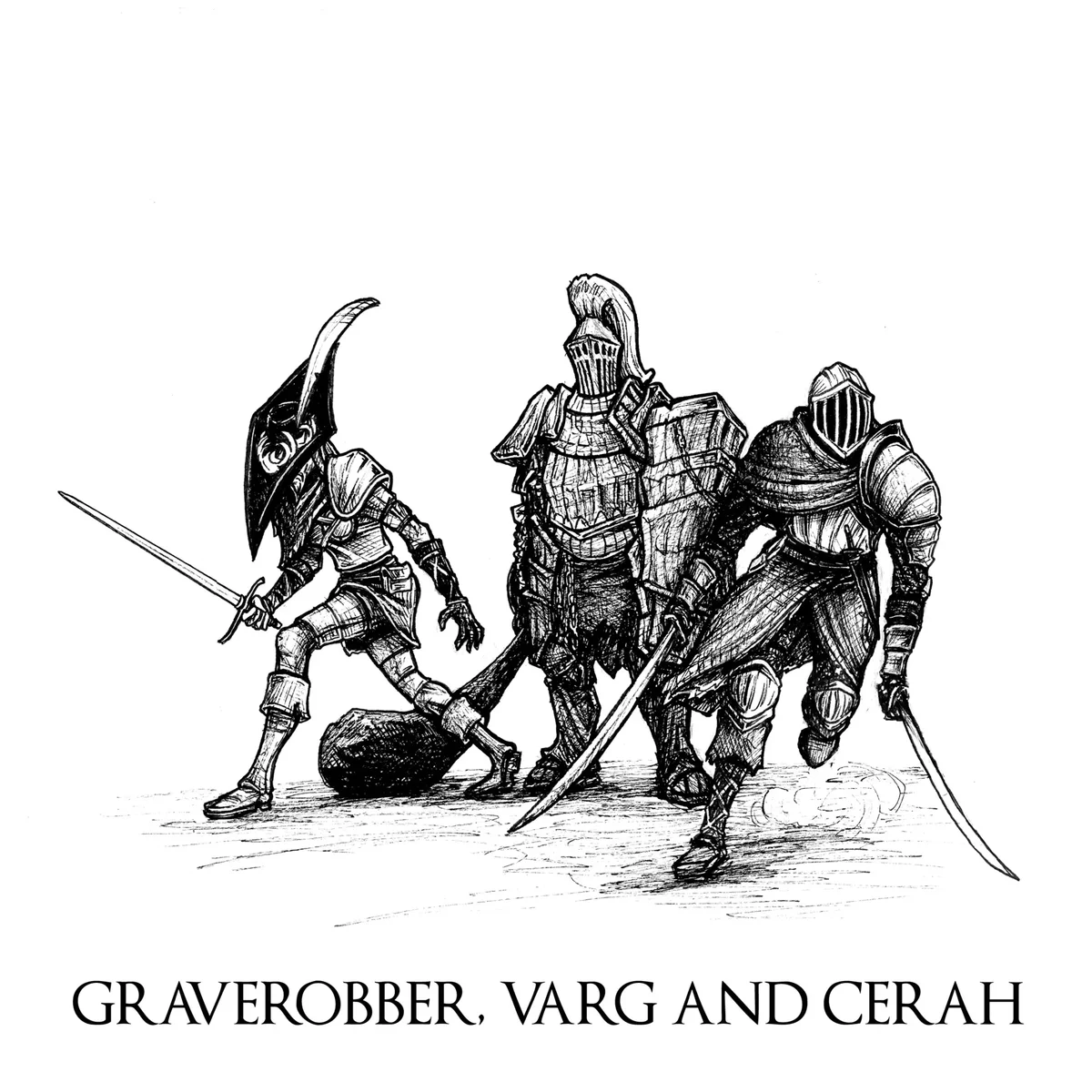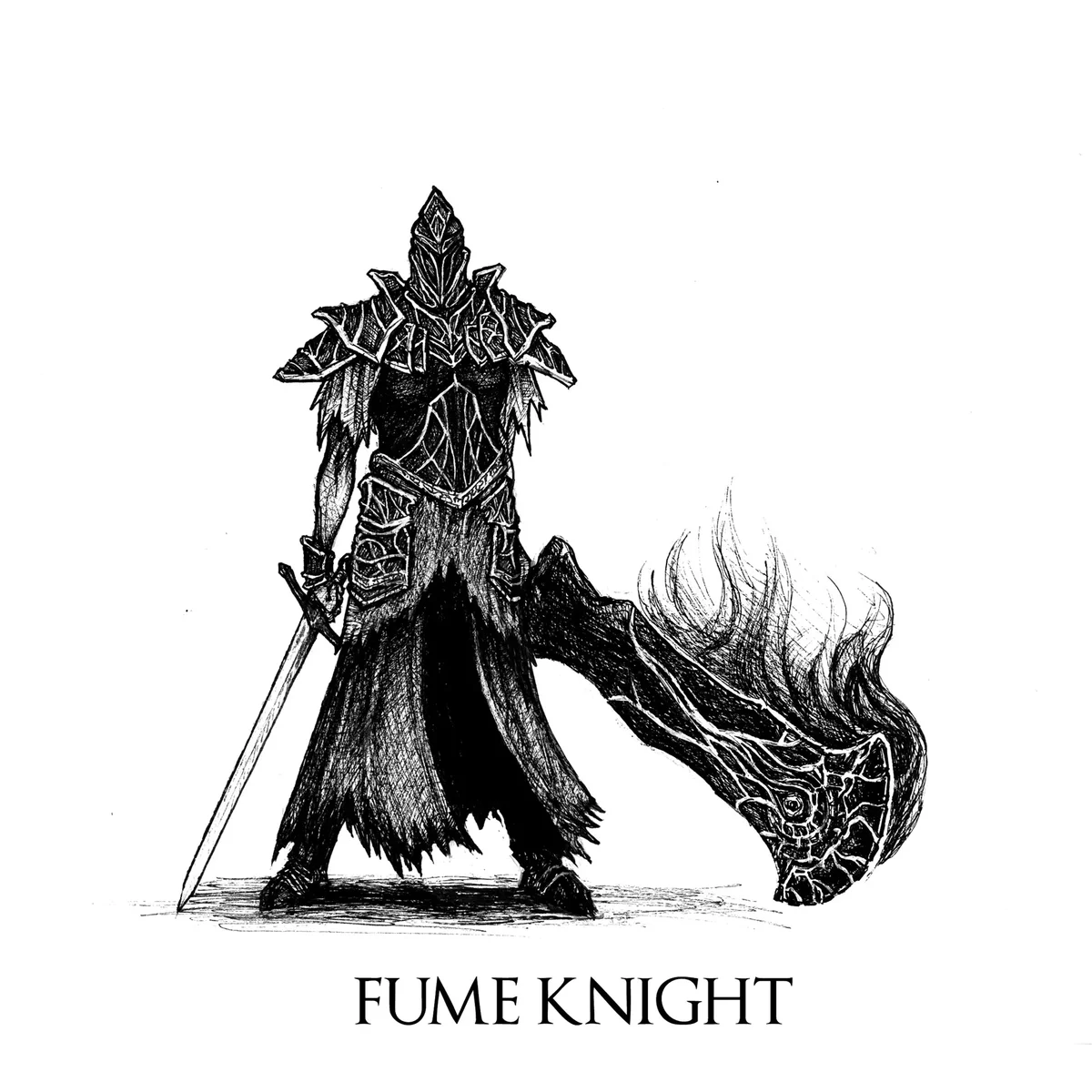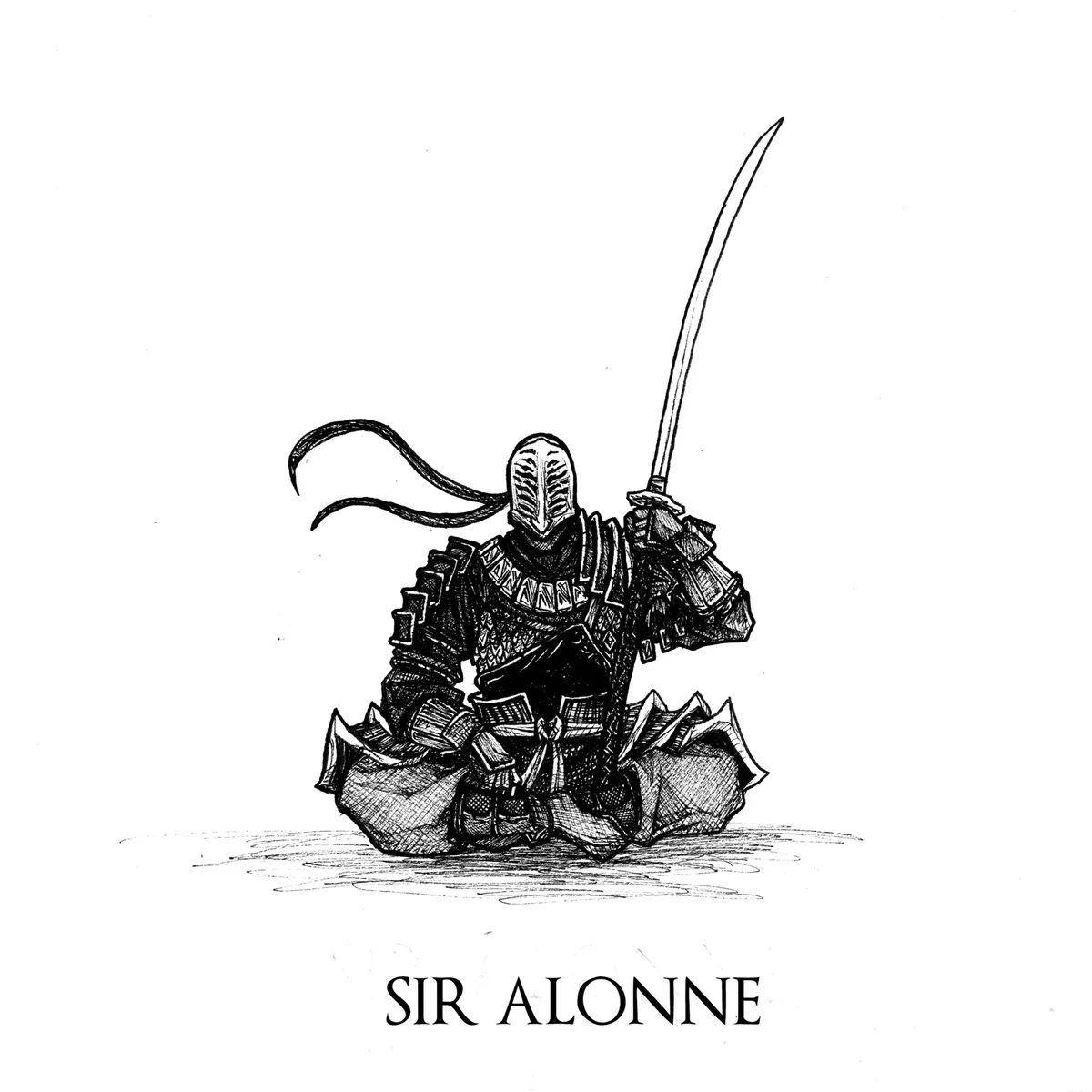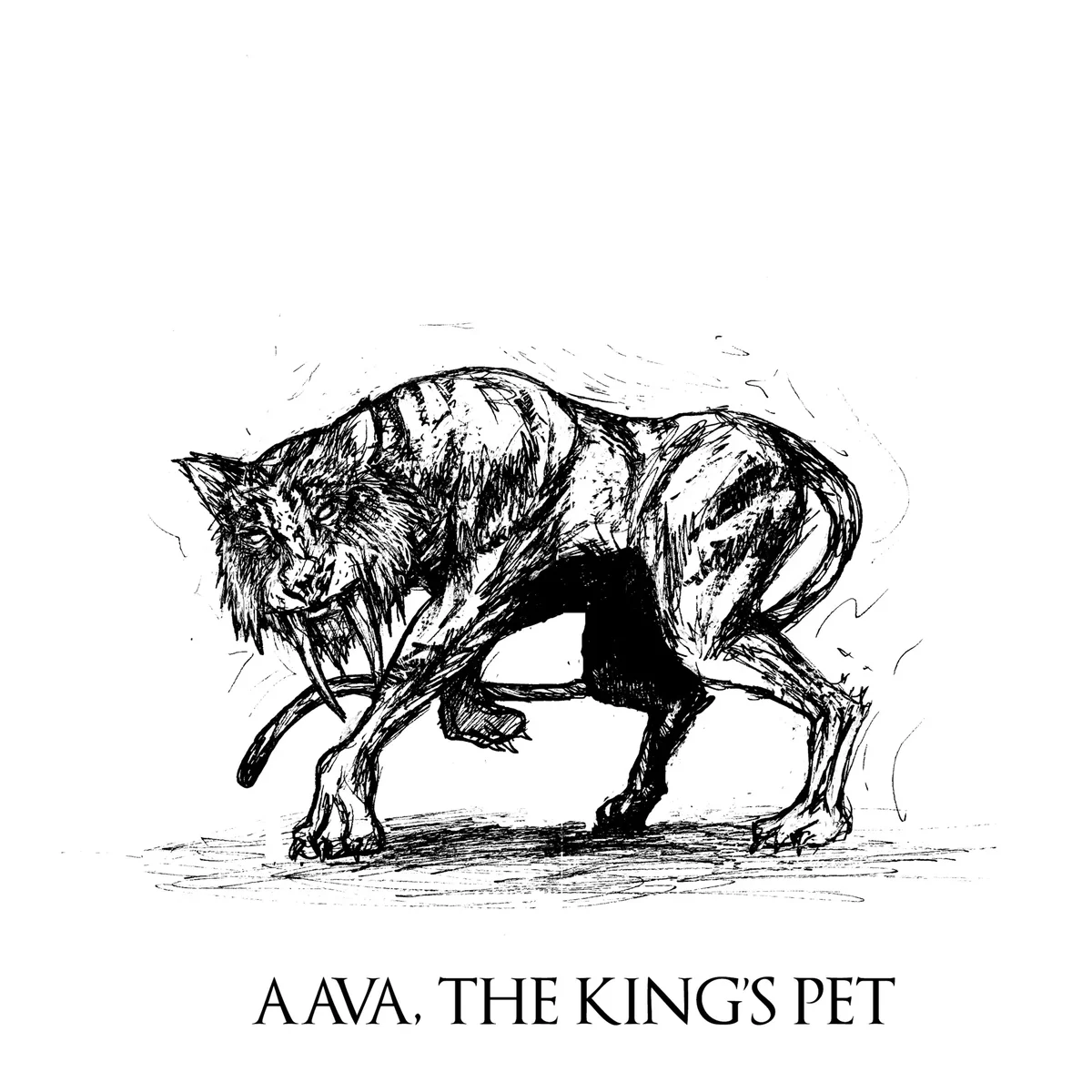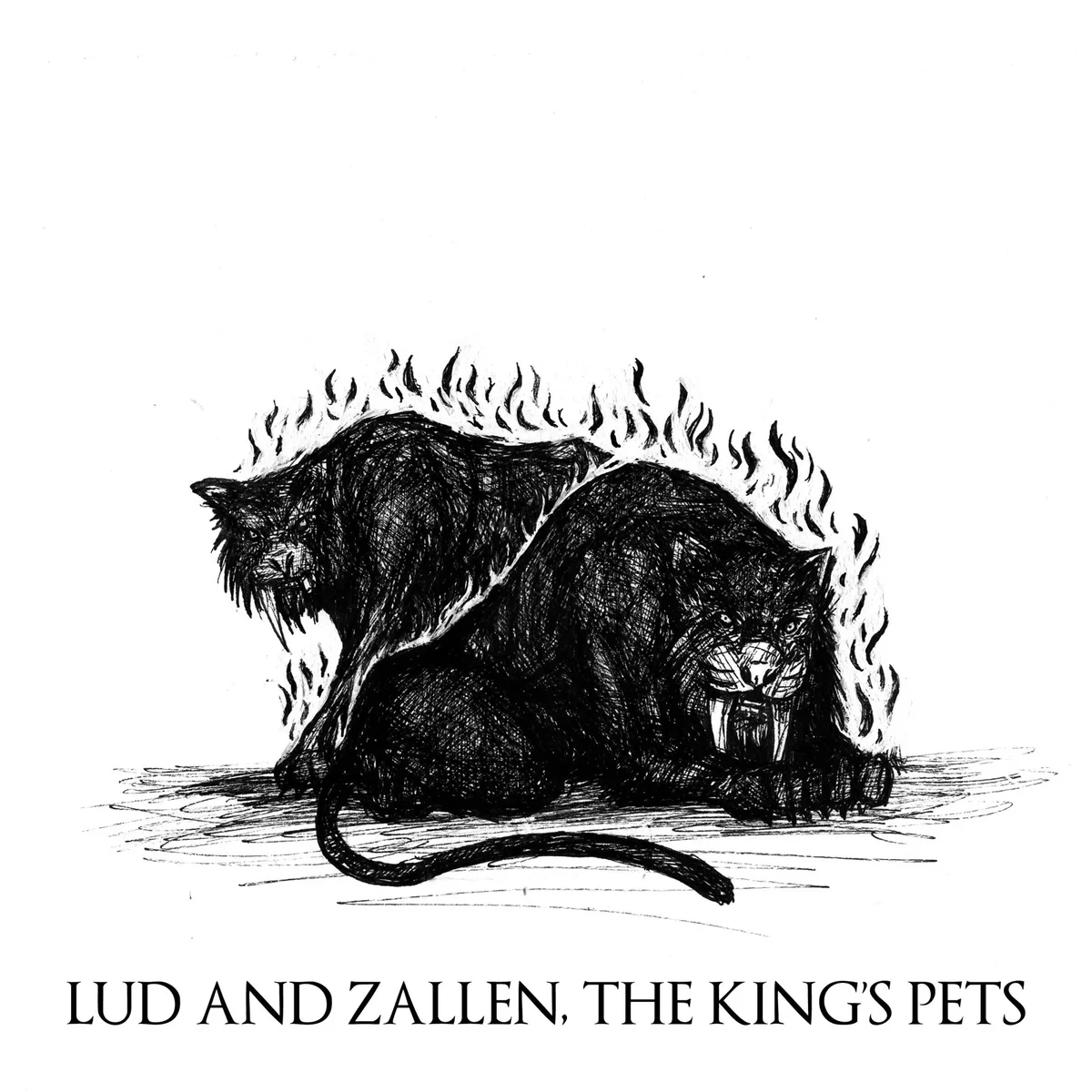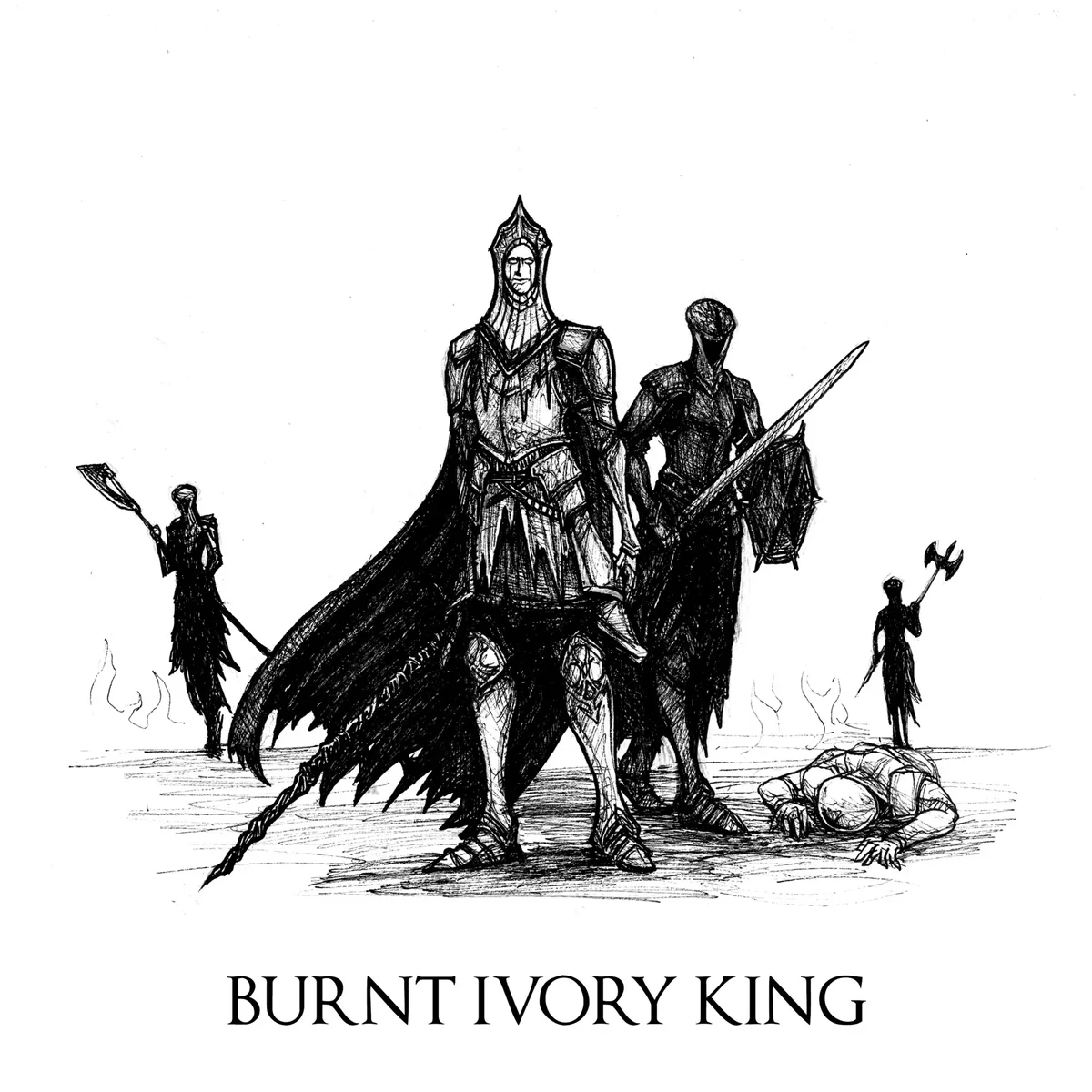Lost in Translation: Boss Names in Dark Souls II
Video version:
Here is the second part of me trying to make sense of Japanese names for Dark Souls bosses. If you've missed the first one, you can check it out here. Luckily, I was able to bring with me from my latest trip to Japan a bunch of Soulsborne-related literature, including artbooks and, most importantly, Dark Souls Trilogy -Archive of the Fire- that has all dialogue scripts and item descriptions I might need.
Disclaimer #0 - common sense is everything. I do not speak The Soulsborne Truth in these posts, I just try to employ my linguistic knowledge and my love for these games to try and dig up some details that have not been carried over to the English version. I will also entertain some lore theories, but they are what they are - theories.
Disclaimer #1 — trust me, I'm a professional if this fact will somehow make this post more credible and trustworthy to you - I am a certified linguist. My major is English and Japanese as foreign languages, my minor is intercultural communication. Fun stuff!
Disclaimer #2 — I am not a professional translator, nor have I ever worked in localization. I will give some info on what the Japanese name of the boss means along with some options how it could be more accurately translated if it isn't. The post will also contain my personal opinion on whether or not the translation was on point. I fully realize that localization is tough and it involves deadlines, absence of context and other various difficulties.
Why do kanji (Japanese characters) have different readings?
This is a popular question in the comment section. In a nutshell, Japanese kanji usually have two types of readings: on-reding and kun-reading, there might be a number of them in each category. On-readings have carried over from Chinese since kanji were borrowed from there, and kun-readings are native to Japanese. When a kanji stands on its own and is used as a single word, it is read with its kun-reading. When a kanji is used as a part of a multi-kanji word, it is read with its on-reading. It is slightly more complicated, but in broad strokes I think it explains it.
Localization info
As far as I know, Dark Souls II was localized into English by Frognation.
Legend
[:] — colon after a vowel means that it's a long sound;
['] — apostrophe after a vowel or before a vowel (or between two [n]) means that these are two different syllables, not a single long one.
The transcriptions I give do not follow all academic rules, and I don't think it's necessary. They are just here to represent the pronunciation.
Sources
For this post I used the Japanese wiki, the English wiki, Dark Souls Trilogy -Archives of the Fire- and a number of dictionaries.
A giant heartfelt thank you to an amazing artist Brent Skinner who gave me his permission to use his incredible artwork to make all Soulsborne posts in this blog a hundred times better. Thank you, Brent! Follow him everywhere - here is the ArtStation, and here is his Twitter.
We'll take a look at the original boss name, then analyze the localized version and see how close it is. I'll try to come up with a more accurate version, if I can.
Let's go.
Main Game
The Last Giant
Japanese - 最後の巨人 [saigo no kyojin] English - The Last Giant
最後 [saigo] - the last.
巨人 [kyojin] - giant, consists of 巨 - “big, giant” and 人 - "human". The same word is used to denote Titans in "Attack on Titan" (Shingeki no Kyojin).
Nothing overly exciting here.
The Pursuer
Japanese - 呪縛者 [jubakusha] English - The Pursuer
That's a weird one.
呪縛 [jubaku] - an exceptionally curious word, consists of 呪う [noro.u] meaning "curse" or any spell and 縛る [shiba.ru] meaning “bind, restrict movement”. The whole word together, apparently, means “a binding spell or curse”, and 者 [mono/sha] points at the agent. So, as far as I can tell, this boss' name is "the one who is bound by a spell/curse".
His description in -Archive of the Fire- says that he "continues to kill those marked by the curse as if trying to atone for the past sins" and that "you can say that he is a prisoner of the binding spell". Who bound him? No clue.
"The Pursuer" does not really convey anything about curses and being bound. It sounds very unique but we know that there is a bunch of these dudes running around. I presume that it is a group of knights tasked with hunting the Undead all over the kingdom and beyond.
Dragonrider
Japanese - 竜騎兵 [ryu:kihei] English - Dragonrider
Quite unexpectedly, there is some French in this.
竜騎兵 [ryu:kihei] - a Japanese word for denoting dragoons, a class of mounted infantry of some European armies.
The origin of the word "dragoon" is shrouded in historical darkness - it is a French word, and the most popular etymology says that it is derived from the French word "dragon", a type of firearm. Another version tells us that it may originate from Latin "Draco" - dragon, because the banners often depicted dragons. French does not distinguish between "dragoon" and "dragon", both are denoted by "dragon".
This word was borrowed into Japanese with all three meanings - something about a dragon, a rider and a soldier. Three kanji you see mean exactly that: 竜 - dragon, 騎 - horse rider, 兵 - soldier.
However, it's obvious that the context in which it is used is all wrong here. Dragoons were historically a cavalry, they rode horses. So, dragoon ≠ dragonrider even if it has "dragon" in the name. But Dragonriders from DSII indeed were riders and mounted wyverns. Why are they named "dragoons"?
Japanese wiki has a whole paragraph dedicated to the usage of this word in fantasy context: in games, books and movies. In a nutshell, in Japanese fantasy works the historical word "dragoon" is often used to denote a dragonrider because of the kanji implications. However, it is not correct to use it like this, and either the English localization knew it or just experienced a spur of enlightenment and correctly translated it as "Dragon Rider". A case most curious.
Old Dragonslayer
Japanese - 古い竜狩り [furui ryu:kari] English - Old Dragonslayer
古い [furu.i] - old, ancient, of the past times.
竜狩り [ryu:ka.ri] - the same word that denoted Ornstein in DSI - "dragon hunter".
Slightly disappointed about the spelling inconsistency between DSI and DSII: Dragon Slayer → Dragonslayer.
Flexile Sentry
Japanese - 流罪の執行者 [ruzai no shikko:sha] English - Flexile Sentry
A lot was lost with this boss.
流罪 [ruzai] - exile.
執行者 [shikko:sha] - the word 執行 [shikko:] means “execution, carrying out, service" and 者 [mono] points at someone performing the action. The boss name is basically "the one who carries out the exile" because that's exactly what he does by transporting the Undead to the Lost Bastille.
English localization apparently could not come up with something more true to the original and named the poor guy according to his appearance (?), spicing things up with the archaic version of "flexible" - "flexile". Maybe it's a genius pun, you know, flexile - exile.
Ruin Sentinels - Alessia, Ricce, Yahim
Japanese - 虚ろの衛兵 [utsuro no eihei] - アレサンドラ [aresandora], ルカ [ruka], レギム, [regimu] English - Ruin Sentinels - Alessia, Ricce, Yahim
虚ろ [utsu.ro] - hollow, vacant (expression), generally denotes something devoid of matter, sense etc.
衛兵 [eihei] - guardian or sentinel.
What's up with the names? Alessandra became Alessia, Luka became Ricce and Legim turned into Yahim. Why so? I've no clue.
According to the lore, these are three souls controlling empty armor, so they are more "Hollow Sentinels", no ruins to speak of in their names. I'd wager that the English localization did not want to choose "hollow" because it already bears a lot of meaning in the DS world, and "empty" probably sounded weird (?), who knows.
Belfry Gargoyle
Japanese - 鐘守のガーゴイル [sho:shu no ga:goiru] English - Belfry Gargoyle
鐘守 [sho:shu] - literally "defender of the bell".
ガーゴイル [ga:goiru] - English "gargoyle" written in katakana.
Interestingly enough, while localizing 鐘守 [sho:shu] - Defenders of the Bell - they chose to use the word "belfry" that denotes a place where the bell is located. The location where we meet the Gargoyles is actually called 月の鐘楼 [tsuki no sho:ro:] - Belfry Luna.
In the lore there is a legend about two lovers who could not be together because their kingdoms were at war. As a symbol of their love, they built two bells and employed certain defenders to guard them. Gargoyles guard the bell of Alken and I cannot really tell why they decided to use "belfry" when the original is really straightforward and says "bell".
The Lost Sinner
Japanese - 忘れられた罪人 [wasurareta tsumibito] English - The Lost Sinner
忘れられた [wasurareta] - passive voice of "forget".
罪人 [tsumibito] - the first kanji 罪 [tsumi] means sin, guilt, crime or any wrongdoing. 人 [hito] - human.
I'm not really sure why localizers chose "lost" over the obvious "forgotten". As for the gender of the Lost Sinner, the Japanese original does not refer to the person with any gender-specific words. The funniest thing though: the Japanese wiki says that it's a woman "because in English they say "she". Hilarious.
Skeleton Lords
Japanese - スケルトンの王 [sukeriton no o:] English - Skeleton Lords
スケルトン [sukeruton] - "skeleton" written in katakana.
王 [o:] - "king" or "ruler", a kanji that we all know and love, half the boss names use it.
Nothing to see here.
Executioner's Chariot
Japanese - 刑吏のチャリオット [keiri no chariotto] English - Executioner's Chariot
Let's get rid of Chariot - チャリオット, it was borrowed from English.
刑吏 [keiri] - executioner, this word literally has only one meaning. But wait, Smough was also an executioner but the kanji were different - 処刑者 [shokeisha]. Both words mean "executioner", although the first one - 刑吏 [keiri], is somewhat more official.
Covetous Demon
Japanese - 貪りデーモン [musabari de:mon] English - Covetous Demon
貪り [musabari] - this kanji was also used in Gaping Dragon from DSI 貪食 [donshoku]. It means "to long insatiably for something". The English localization picked the word "covetous" that has a meaning of "longing for something, especially if somebody else has it". Works great with the lore: when this demon was a man, he desired queen Mytha's love but she loved another. Who would've thought that DSII is full of romance and love stories.
Mytha, the Baneful Queen
Japanese - 毒の妃ミダ [doku no hi mida] English - Mytha, the Baneful Queen
毒 [doku] - poison. Mytha wanted to be more beautiful and thought poison would let her achieve it. Alas, it turned her into a monster. What a bummer.
妃 [hi] - queen.
ミダ [mida] - could be spelled as "Mida", but Mytha is also fine.
"Baneful" has an archaic meaning of "poisonous", so "The Baneful Queen" is kinda cool, I like it.
Smelter Demon
Japanese - 熔鉄デーモン [yo:tetsu de:mon] English - Smelter Demon
Demon's name is related to the location - 熔鉄城 [yo:tetsujo:]. This word is comprised of 3 kanji:
熔る [toke.ru] - to melt, to thaw or to fuse.
鉄 [tetsu] - iron.
城 [shiro] - castle.
A castle where iron is melted. Smelter is a pretty good choice when translating 熔鉄 [yo:tetsu].
Old Iron King
Japanese - 鉄の古王 [tetsu no koo:] English - Old Iron King
Very simple.
鉄 [tetsu] - iron.
古王 [koo:] - literally "old king".
Royal Rat Authority
Japanese - ネズミの王の試練 [nezumi no o: no shiren] English - Royal Rat Authority
A really interesting name, unfortunately lost.
ネズミの王 [nezumi no o:] - rat king. Despite the fact that "nezumi" is written in katakana, it is a Japanese word.
試練 [shiren] - test or trial.
The second の particle points at the fact that the trial belongs to the king. This boss' name is literally "Rat King's Trial", and indeed, his task is to put to the test those who seek King's attention and determine whether they are worthy.
Royal Rat Vanguard
Japanese - ネズミの王の尖兵 [nezumi no o: no senpei] English - Royal Rat Vanguard
ネズミの王 [nezumi no o:] - as we've already discussed, "rat king".
尖兵 [senpei] - vanguard.
I don't really like "Royal Rat" stuff because it's Rat King. Who's Royal Rat anyway? Is there one or many? Both bosses are the subjects of the Rat King, what's the issue with translating his title as is, I dunno.
The Rotten
Japanese - 腐れ [kusare] English - The Rotten
腐れ [kusare] - rotting, decaying, decomposing, 50 shades of spoilage.
Stellar success.
Scorpioness Najka
Japanese - 蠍のナジカ [sasori no najika] English - Scorpioness Najka
蠍 [sasori] - scorpion.
ナジカ [najika] - Najka, no problems here.
For some funny reason, the English localization chose to specify that Najka is a girl, so they added -ness to get Scorpioness. Somehow her poor husband turned into a mess - yet again they chose to specify that he is a man, as if you could get confused, and came up with Manscorpion, which I think is ridiculous. In Japanese both Najka and Tark do not have any differences apart from their proper names, they are both just scorpions: 蠍のナジカ (Scorpion Najka) and 蠍のターク (Scorpion Tark).
Prowling Magus and Congregation
Japanese - 彷徨い術士と信心者たち [samayoi jutsushi to shinjinshatachi] English - Prowling Magus and Congregation
A really weird long name that sounds like a title of a mediocre anime.
彷徨い [samayo.i] - behold the greateness and the beauty of the Japanese language. The reading of the first kanji is [samayo.u]. The reading of the second kanji is... [samayo.u]. And together they are also [samayo.u]. How cool is that!? The word means "to wander (aimlessly), to roam".
術士 [jutsushi] - that's a weird one. There is a word 魔術師 [majutsushi] that means "magician", and 術士 [jutsushi] is almost that, except the first kanji about magic is nowhere to be seen, and the last one is changed from "expert" to "scholar", with the same reading. The only dictionary entry I was able to dig up told me that this word is used in the Japanese name for "The Book of the Sacred Magic of Abramelin the Mage", where "the Mage" is 術士 [jutsushi]. Curious.
と [to] - "and".
信心者たち [shinjinshatachi] - the word 信心 [shinjin] means "belief", especially religious, and 者 [sha] points at an agent. たち [tachi] specifies that the noun is plural - there are many believers and not just one.
"Prowling" is kind of an odd choice, "Wandering" would've been better, I think. Maybe the whole name is a reference to Abraham who travelled to Egypt to learn magic from Abramelin the Mage, like this Magus was learning things from Aldia, but if it is indeed a reference, I wonder how many people got it.
The Duke's Dear Freja
Japanese - 公のフレイディア [ko: no fureidia] English - The Duke's Dear Freja
公 [ko:] - can be used to denote various aristocracy, duke is fine. This word is here just to show that the spider belongs to Duke Tseldora.
フレイディア [fureidia] - Freidia, somehow turned into Freja. Was someone reading katakana too fast and skipped a syllable?
Should be "Duke's Freidia" but apparently it sounded dull to the localizers and they added "dear" to show that the Duke cared for a little spider girl. A debatable decision since the original does not have anything else except for the two aforementioned words, but I am way more upset about Freidia/Freja.
Looking Glass Knight
Japanese - 鏡の騎士 [kagami no kishi] English - Looking Glass Knight
鏡 [kagami] - mirror.
騎士 [kishi] - knight, the same word was used for Artorias and the Four Knights of Gwyn in DSI.
He wears reflective armour, and his shield is practically a mirror. According to the lore, some believe that his shield is a portal to another world, that's probably why it was translated as "Looking Glass".
Darklurker
Japanese - 闇潜み [yamihisomi] English - Darklurker
Very straightforward:
闇 [yami] - darkness.
潜み [hisomi] - derived from 潜む [hiso.mu] - to be hidden.
Darklurker is indeen lurking in the remains of the Abyss. Success!
Demon of Song
Japanese - 唄うデーモン [utau de:mon] English - Demon of Song
唄う [uta.u] - to sing. Actually, more frequently used kanji for the verb "to sing" is 歌 with the same reading. This one, however, is used when describing religious singing, or singing of epic ballads. It's quite logical, because the demon learned to imitate the songs of Milfanito, who sang to ease the pain of the Undead. These songs must have been special.
I'd say this boss is more "Singing Demon" than "Demon of Song", otherwise you might think that the song is somehow demonic, when it's really about a demon who learned to sing.
Velstadt, the Royal Aegis
Japanese - 王盾ヴェルスタッド [o:tate berusutaddo] English - Velstadt, the Royal Aegis
王盾 [o:tate] - literally "king's shield". I love «the Royal Aegis» translation, it's awesome, and I really like the word "Aegis". I encountered it first over a decade ago while playing Dungeon Siege II and it puzzled me greatly for a while because the Russian localization was really messed up and inconsistent. Actually, the world "aegis" was borrowed into English from Greek, where it was used in classical poetry and art to denote a kind of shield or cover of Athena's, made possibly from Gorgon's skin. Later it changed to describe any kind of gods' armor, not only shields, and then gradually shifted to surpass the god-related meanings, preserving, however, its elevated tone.
ヴェルスタッド [berusutaddo] - Velstadt all right.
Vendrick
Japanese - ヴァンクラッド [bankuraddo] English - Vendrick
ヴァンクラッド [bankuraddo] - oh, what a shock. Vendrik is actually Vankladt! His real name sounds really close to Velstadt, possibly because it's a naming pattern in Drangleic. I can think of only one reason why the localization chose to change the name - probably they were afraid that players would confuse him with Velstadt. I think that people would be fine differentiating between two charaсters whose names start with the same letter though. Oh well.
Guardian Dragon
Japanese - 護り竜 [mamori ryu:] English - Guardian Dragon
護り [mamori] - derived from 護る [mamo.ru] - to protect, to guard.
竜 [ryu:] - dragon.
Success.
Ancient Dragon
Japanese - 古の竜 [inishie no ryu:] English - Ancient Dragon
Seems to be familiar: 古い [furu.i] - old/ancient and 竜 [ryu:] - dragon, nothing to discuss. But! If he were "Ancient Dragon", he would be written similarly to "Old Dragonslayer" - 古い竜. However, we can see that the kanji for "old" does not have a typical adjective inflection but a の particle.
In rare cases, 古 kanji takes the reading [inishie] and acts like a noun. Inishie means "antiquity, ancient times". It is "Dragon of the Ancient Times", not the same as "Ancient Dragon". Nashandra and Shalquoir heavily imply that this Ancient Dragon is not a real one - it is partly proved by the fact that upon death he drops a souls of a giant, and not a soul of a dragon. We know that Aldia wanted to find a way to create an ancient dragon and he experimented a lot with giants' souls. -Archives of the Fire- says it very clearly while describing this dragon:「古竜の姿を持つ存在」- «a creature that takes a form of an ancient dragon».
Giant Lord
Japanese - 巨人の王 [kyojin no o:] English - Giant Lord
We already know all of these words but let's refresh our knowledge:
巨人 [kyojin] - giant.
王 [o:] - king.
"King of the Giants" might've been better.
Throne Watcher and Throne Defender
Japanese - 玉座の監視者 [gyokuza no kanshisha]・玉座の守護者 [gyokuza no shugosha] English - Throne Watcher and Throne Defender
玉座 [gyokuza] - throne. Literally "a precious seat". Possibly round in shape :D
監視者 [kanshisha] - watcher, derived from 監視 [kanshi] - to monitor, to watch.
守護者 [shugosha] - defender, derived from 守護 [shugo] - to defend.
Nothing too fancy.
Nashandra
Japanese - デュナシャンドラ [dyunashandora] :D English - Nashandra
Her name is Dunashandra, yep. Probably they cut the first syllable because Nashandra sounds more epic?.. Who knows.
Aldia, Scholar of the First Sin
Japanese - 原罪の探究者 アン・ディール [genzai no tankyu:sha an di:ru] English - Aldia, Scholar of the First Sin
原罪 [genzai] - first sin, the religious term.
探究者 [tankyu:sha] - investigator or researcher.
アン・ディール [an di:ru] - a very unique name unlike anything we've seen in the DS universe. Probably should've been Ahn Deel or something, was turned into Aldia, which is way easier to comprehend. The name sounds like something Arabic, probably another reference that I'm unable to grasp because I'm too uneducated for these games.
Crown of the Sunken King DLC
Elana, the Squalid Queen
Japanese - 穢れのエレナ [kegare no erena] English - Elana, the Squalid Queen
穢れ [kegare] - the meaning of this word conveys some sort of uncleanliness, impurity, defilement and such, even corruption. I am not sure "squalid" is a good choice here. As far as I know, "squalid" has a meaning of "filthiness from neglect or poverty" and it's not often used when describing people. Elana the Defiled would've been better in my opinion.
エレナ [erena] - it's Elena, really. Someone probably was reading katakana too fast again and swapped the syllables. Welp, happens to the best of us. Elana would look like this - エラナ.
The word "queen", by the way, is not present in the original but Elana is indeed a queen.
Sinh, the Slumbering Dragon
Japanese - 眠り竜シン [nemuri ryu: shin] English - Sinh, the Slumbering Dragon
眠り [nemu.ri] - derived from the verb 眠る [nemu.ru] - to sleep, to be idle or dormant. Could be "the Dormant Dragon" but I have nothing against "slumbering".
竜 [ryu:] - dragon. DSII just uses a proper kanji for "dragon" instead of a katakana "dragon", curious.
シン [shin] - I assume that it's SinH not to name him Sin. Well done :D
Afflicted Graverobber, Ancient Soldier Varg, and Cerah the Old Explorer
Japanese - 冒された盗掘者 [okasareta to:kutsusha]・古い戦士ウォーグ [furui senshi ba:gu]・古い探索者セラ [furui tansakusha sera] English - Afflicted Graverobber, Ancient Soldier Varg, and Cerah the Old Explorer
What the heck.
冒された [okasareta] - passive voice of 冒す [oka.su], a verb with many meanings including "to afflict, to desecrate, to assume someone else's name". There isn't much lore about these guys, could be "Afflicted", really. This one wears Alva's armour, and Alva's lore is about finding a cure for some affliction.
盗掘者 [to:kutsusha] - literally "graverobber".
古い [furu.i] - old, of the past.
戦士 [senshi] - soldier or warrior.
ウォーグ [vo:gu] - more "Vorg" than "Varg".
探索者 [tansakusha] - explorer, nothing too fancy.
セラ [sera] - Cerah.
Some bosses in DSII have really long names and come in groups, huh. Still better than Prowling Magus, that one was pretty ridiculous.
Crown of the Old Iron King DLC
Fume Knight
Japanese - 煙の騎士 [kemuri no kishi] English - Fume Knight
煙 [kemuri] - smoke. For some reason turned into "fume" that has a bigger pool of meanings. I guess, Smoke Knight did not sound really good :D
騎士 [kishi] - knight.
Sir Alonne
Japanese - 騎士アーロン [kishi a:ron] English - Sir Alonne
Alonne the Knight did not seem good enough (and it doesn't seem that good to me either), so they translated this name as Sir Alonne. A great choice.
アーロン [a:ron] - Aaron/Aalon/Alonne.
Crown of the Ivory King DLC
Aava, the King's Pet
Japanese - 王の仔アーヴァ [o: no ko a:va] English - Aava, the King's Pet
王 [o:] - king/ruler.
仔 [ko] - this kanji is used to denote an offspring of an animal. Since Aava was one of the king's seven pets, the translation is fine.
アーヴァ [a:va] - Aava, all correct.
Lud, the King's Pet & Zallen, the King's Pet
Japanese - 王の仔ラド [o: no ko rado]・王の仔ザレン [o: no ko zaren] English - Lud, the King's Pet & Zallen, the King's Pet
More kittens.
ラド [rado] - Lud, nothing too complicated.
ザレン [zaren] - Zallen/Zaren/Zalen.
Burnt Ivory King
Japanese - 灼けた白王 [yaketa hakuo:] English - Burnt Ivory King
Ivory. What.
灼けた [yaketa] - burnt by something (here by the flames of Chaos).
白王 [hakuo:] - white king. No ivory. Just white. Like Seath was just whitedragon, this one is just whiteking. I struggle to understand what kind of problems the localization encounters every time they see a simple kanji 白 (white).
Bonus!
Emerald Herald
Japanese - 緑衣の巡礼 [ryokui no junrei] English - Emerald Herald
緑衣 [ryokui] - consists of 緑 [midori] - green or emerald green and 衣 [koromo] - clothes. Literally "clad in green".
巡礼 [junrei] - pilgrim. She is not a herald but a pilgrim. Emerald Pilgrim or Pilgrim Clad in Green. She travels the lands trying to find the one Undead who will complete the whole chain with the great souls and all the other stuff. "Junrei" is not exactly a rare word or something, I wonder why they chose "herald" instead.
Sweet Shalquoir
Japanese - 愛しいシャラゴア [itoshii sharagoa] English - Sweet Shalquoir
愛しい [itoshii] - sweet, lovely. This word describes a personal opinion rather than an objective quality, so that's something to keep in mind. You say "itoshii" about someone you personally hold dear.
シャラゴア [sharagoa] - this name must have been constructed in English first, there is just no other way. It is very specifically French, it is very unique in the Dark Souls universe, and you just can't derive Shalquoir from [sharagoa] unless you know it should be this way.
Where does "Shalquoir" come from anyway? It drives me (and the fandom it seems) insane. If you google “Shalquoir”, you'll just get "Oh, it's the trader from DSII" type of answers. I don't really speak French, and whatever knowledge I have about it is thoroughly lacking to determine what word served as an inspiration for the blasted cat's name, if any. Of course, it might just be a random exquisite French-sounding name but c'mon, I am a fan of the Soulsborne lore and I have a right to dig for secret meanings and references everywhere.
The more precise adaptation of the Japanese-written name would be something like Shalagore - here we can briefly visit Serbian and say that it might be derived from šala, meaning "joke", but that's already a descend into insanity way too deep, let's not do that.
Interestingly enough, when you get acquainted with the cat, the way she introduces herself in Japanese kinda implies that Shalquoir is not her real name.
「私は、そうね シャラゴアって呼んでいいわ」
This そうね makes the whole thing sould like "I am... emmm... you can call me Shalquoir". 呼んでいい - can call me - is used in situations like "My name is Alexander, Lex 呼んでいい" or something.
I looked through all her dialogue scripts in the game (I'm pretty intense) and found that she uses そうね only when talking about something she is not really sure about - when she smells you but can't really say what kind of smell it is; or when struggling to find the right words - when she is trying to tell you what covenants are. Weird that she would use this little そうね filler when introducing herself and giving you her name. I'm just throwing around wild guesses, don't mind me. The cat drives me nuts.
Throne of Want
Japanese - 渇望の玉座 [katsubo: no gyokuza] English - Throne of Want
渇望 [katsubo:] - consists of "thirst" and "desire", derived from the verb 渇く[kawa.ku] - to be thirsty, to crave, and 望む [nozo.mu] - to wish. 渇望 [katsubo:] - something that you want more than anything.
I am really pleased with the coice of "want" here. Wish/desire do not convey this meaning of thirstiness, of necessity with which this want is associated. Nashandra embodies Manus' thirst for power, and she is suffering without it. It's not only her desire but her want - so strong that it kickstarted the whole plot of DSII.
玉座 [gyokuza] - throne, we've seen that one.
Giant's Kinship
Japanese - 巨人の共鳴 [kyojin no kyo:mei] English - Giant's Kinship
A very important object, and yet the name was somewhat lost.
巨人 [kyojin] - giant, we've seen this word.
共鳴 [kyo:mei] - resonance. The first kanji means "together, all, something in common", the second kanji is used to denote a hoard of different sounds both animal and human but can also act as a verb "to echo, to resound, to rumble".
As we know, this is a key for the Throne of Want, and, according to the most popular theory, the Throne is exatly that "something" that Vendrik stole from the giants for Nashandra. It's only logical that to access such an object, you have to be a giant or somehow relate to giants. Resonance is not really an item but more like a sigil, a mark that you get after you defeat the King of the Giants. Curious that you can get it only from the King and not from any giant. Probably, you need the Resonance to rule and sit upon the Throne of Want?..
"Kinship" is easier to understand that "resonance" in this context, probably that is why it was chosen by the localization. Dark Souls can be obscure, I get it.
Many people who are studying Japanese in DS, translate Kyojin no Kyoumei like "Resonance with the Giants" but I never really bought it because of the possessive particle の. "Resonance with the Giants" sounds like you looted the corpse of the King and suddenly started resonating with the giants. Why would that thing even drop from the king? He doesn't need to resonate with anybody, he's already a giant. I think that this not-really-an-item points at the resonance the giants have with one another, at their bond and unity as a nation. That's why the King has it, that's why it opens up the path to the Throne. All in all, it's pretty hard to wrap your head around it, but that's my opinion as of now anyway.
Conclusion
What was great
- Good choice of words with nuanced names - Covetous Demon, Royal Aegis, Throne of Want;
- Dragon Rider and not "Dragoon", thank you;
- Overall percentage of precise translations.
What was mmeh
- Proper names. Dunashandra became Nashandra, Erena - Elana, Freidia - Freja. Ruin Sentinels got really weird too;
- Bizarre choice of words when the original is very straightforward: Prowling, Royal Rat (?), Herald;
- Flexile Sentry is all over the place;
- Scorpioness and Manscorpion are a mess when their originals as super simple. Same goes for the Ivory King.
While writing this post I was getting gradually upset at the English localization not being very creative like they were with DSI. And then suddenly I realized that that's because the original is not very creative either despite the fact that the game has 3 DLCs and the number of bosses is shocking. 95% of translations are straight as a stick because the originals are simple, and the other 5% are basically dragoons riding dragons, poor Flexile Sentry dude, Pursuers-bound-by-curse and some really weird stuff like Prowling Magus and Congregation. DSII boss names are really easy to categorise and they reuse a lot of same words and kanji - a million variations of defenders, watchers, sentinels, guardians and so on.
DSII is kind of a special kid in the Soulsborne family, and now I realize that it's also special in terms of boss names too. It was just not as thrilling as DSI. It was a challenge to compose this post because many bosses do not have any provable lore. Why is Afflicted Graverobber afflicted? I've no clue and thus I can't say if the localization is any good. Uncertainty in DSII when it comes to boss lore oddly pairs up with straightforwardness. Unlike DSI where the lore would explain boss names (like with Gwyndolin or Seath), in DSII sometimes you don't need to look any further than the names, like Throne Watcher and Throne Defender. One watches the Throne and the other defends it, there's nothing else about them.
DSII was my first game in Dark Souls series, I don't dislike it. However, in terms of linguistic material, it was not as thrilling as DSI. I wonder how DSIII will surprise me.
Lost in Translation: Boss Names in Dark Souls I
Lost in Translation: Boss Names in Dark Souls III
